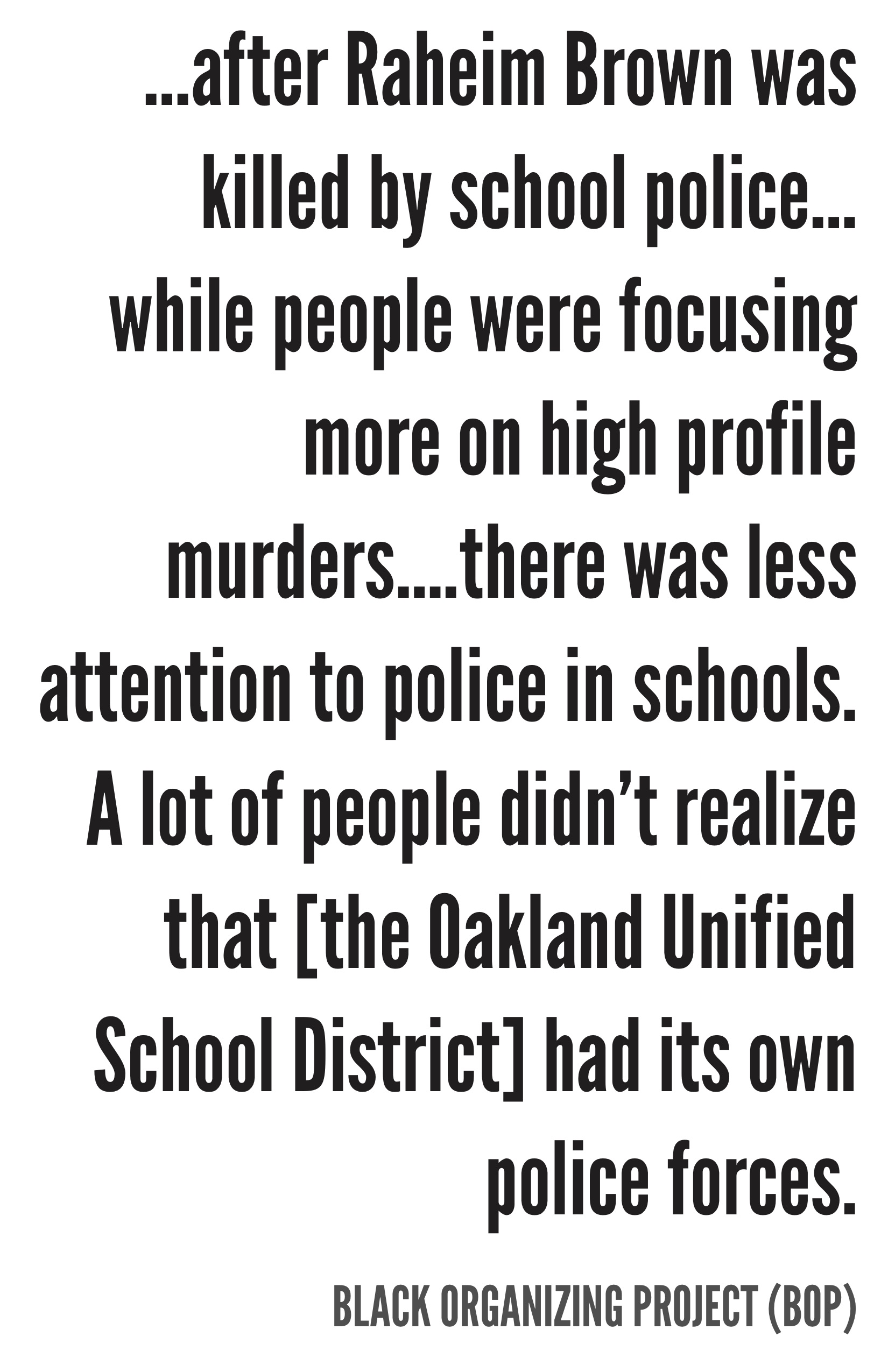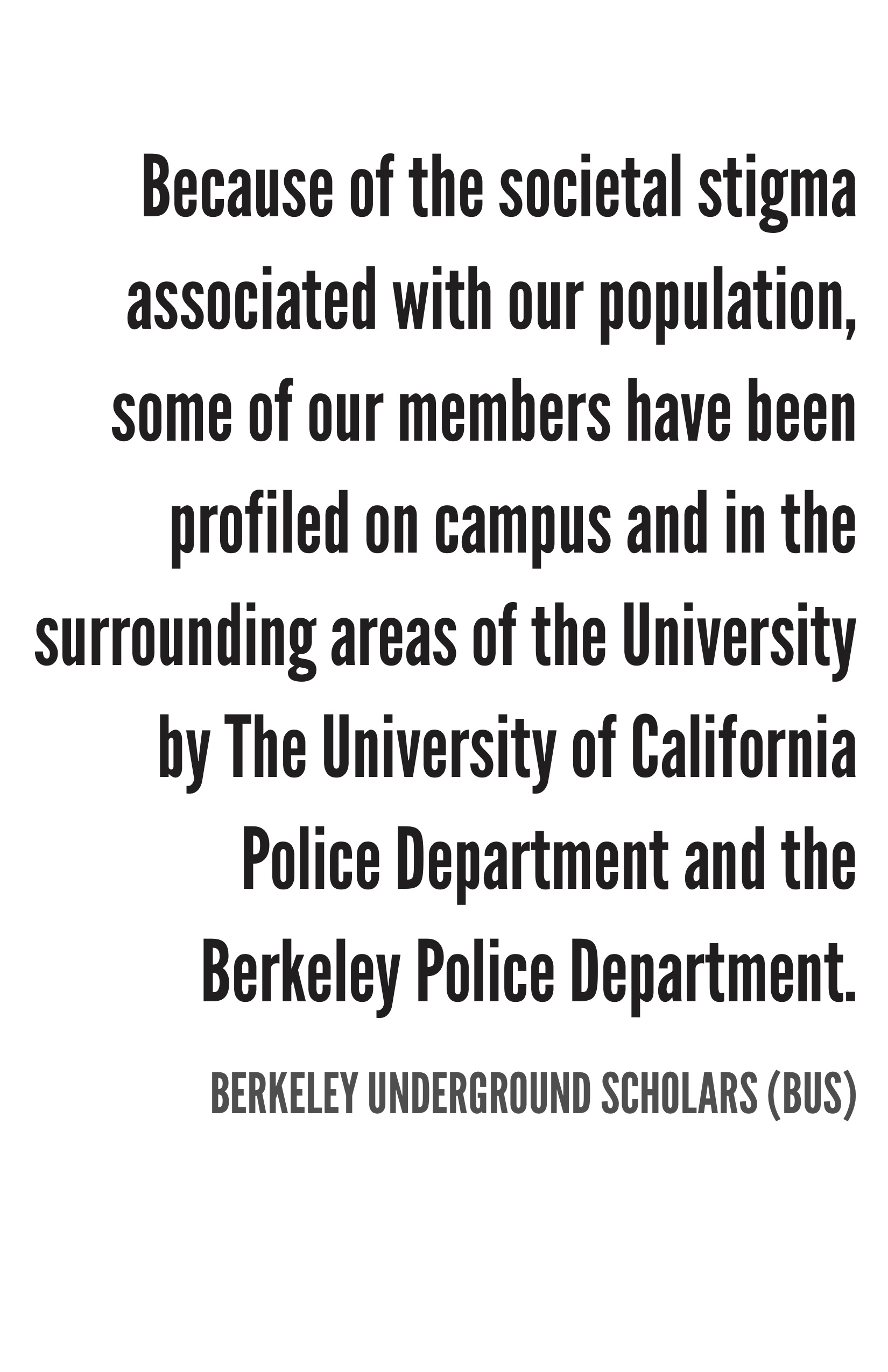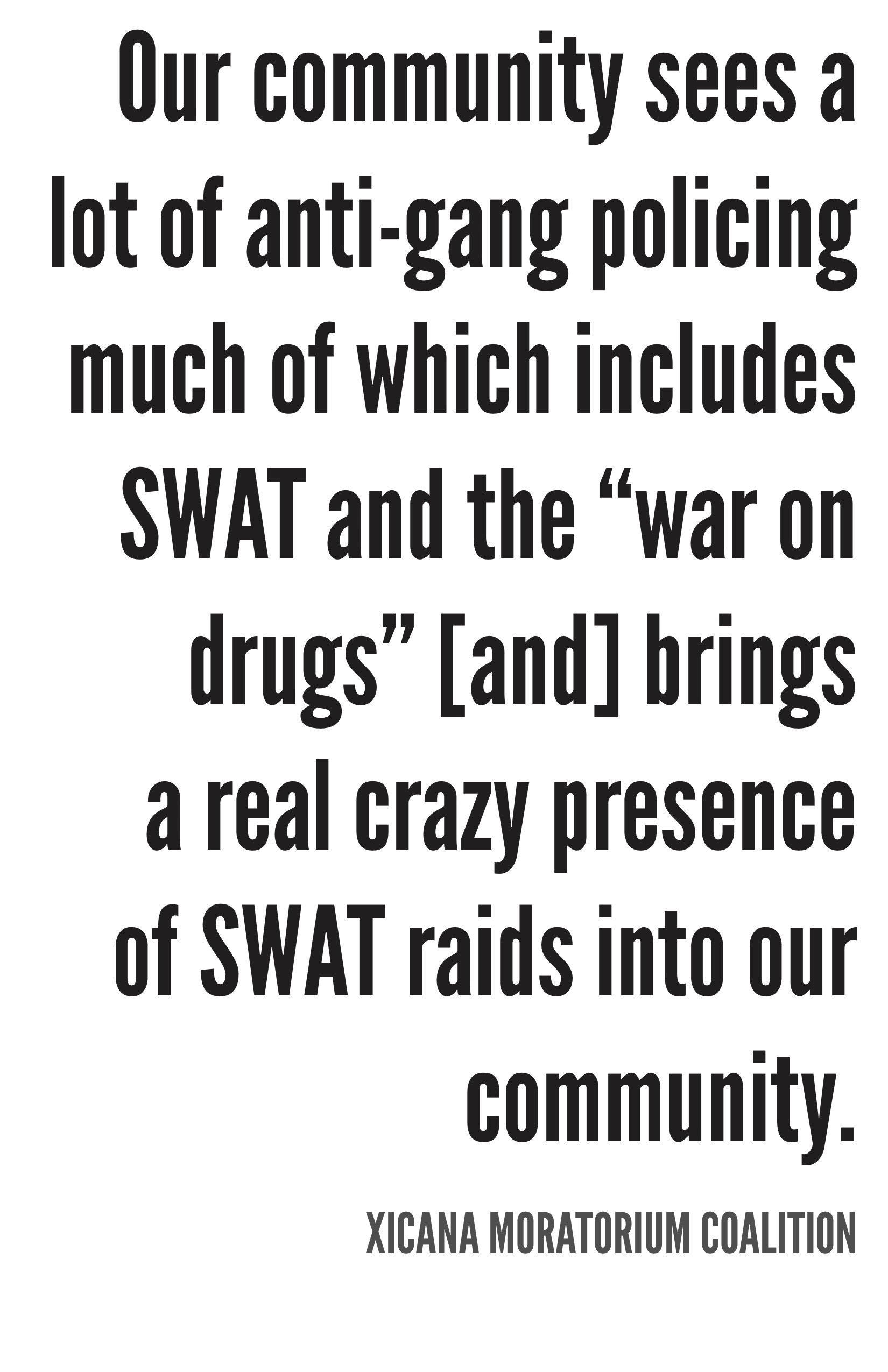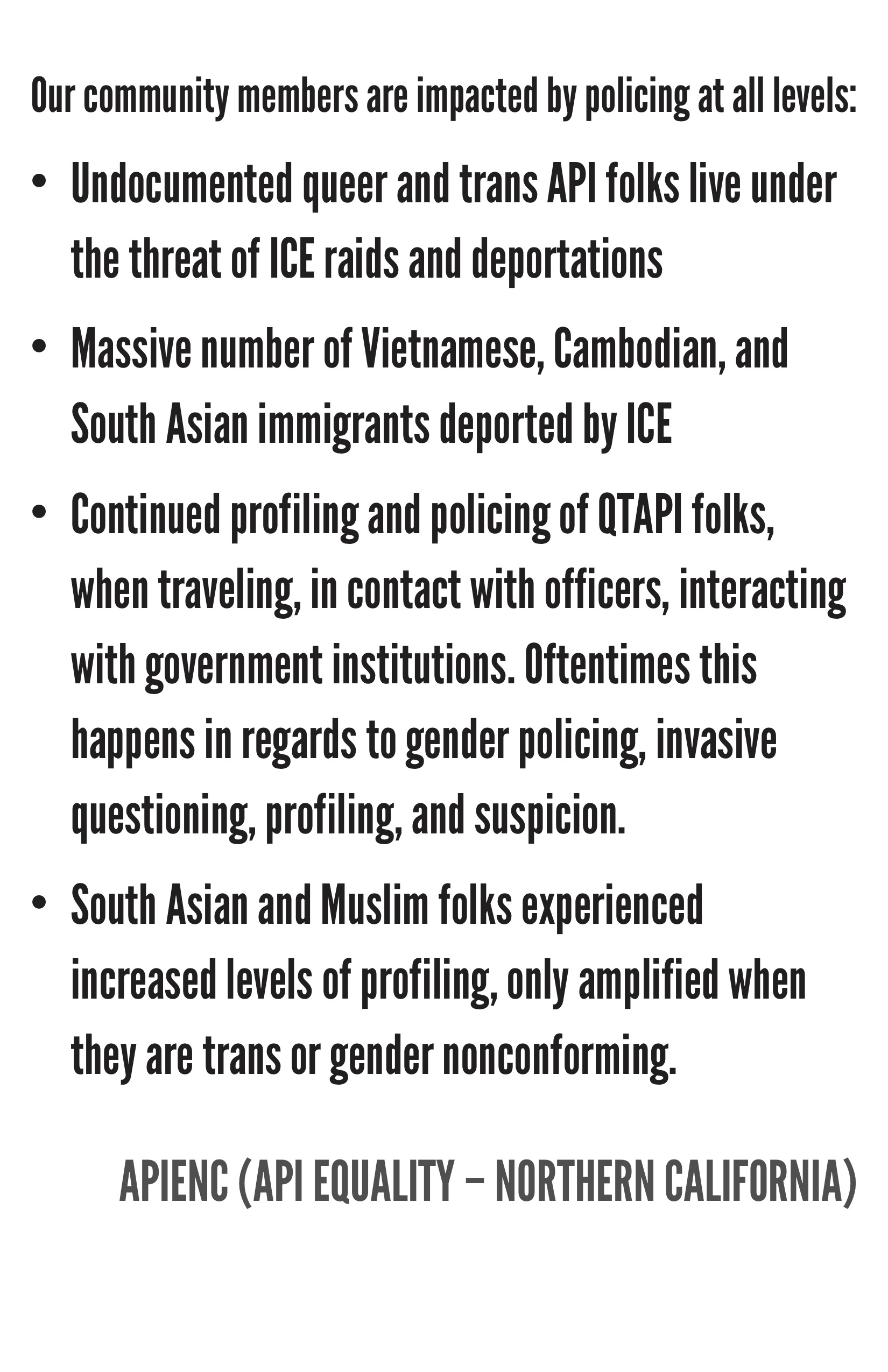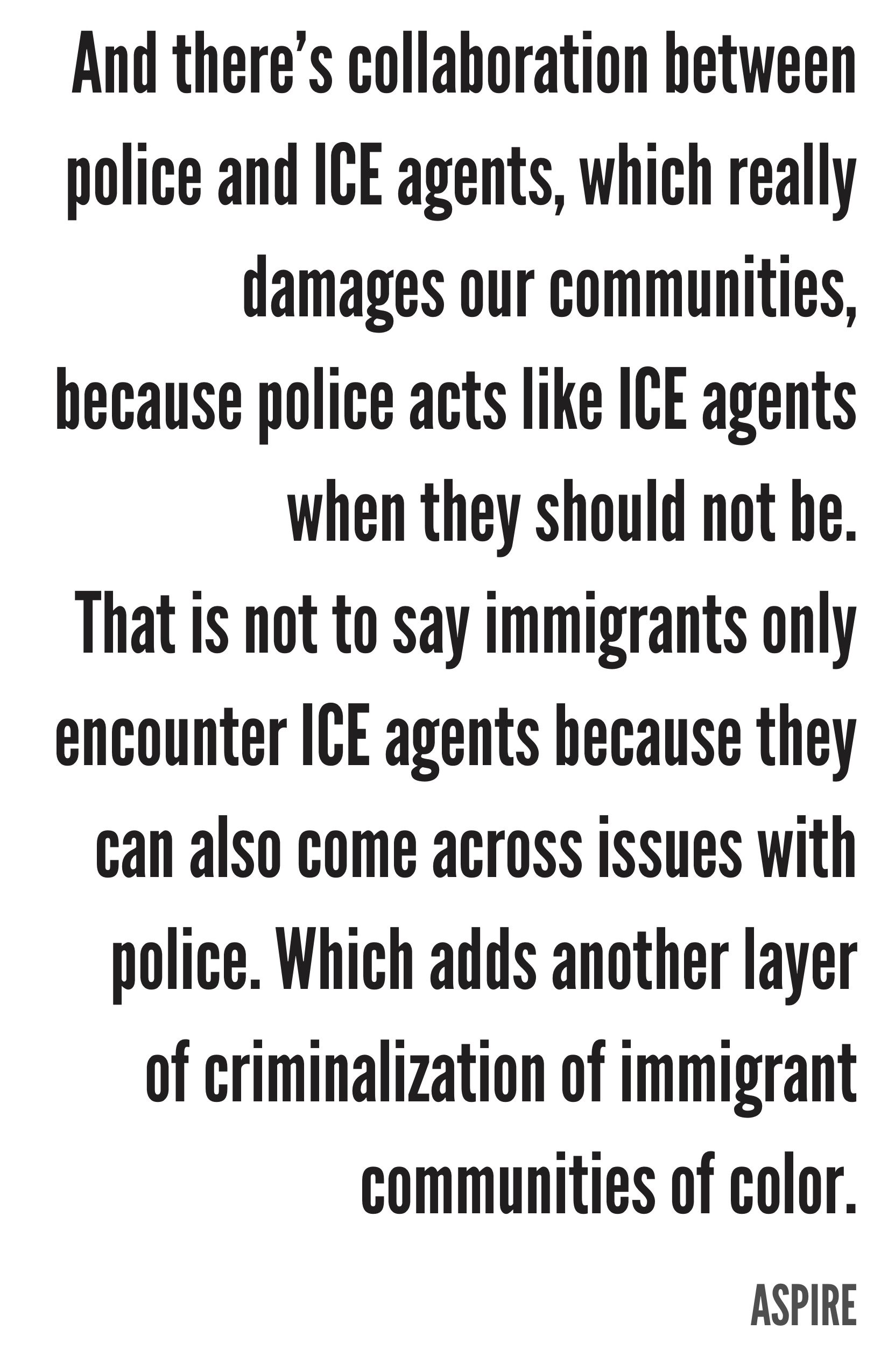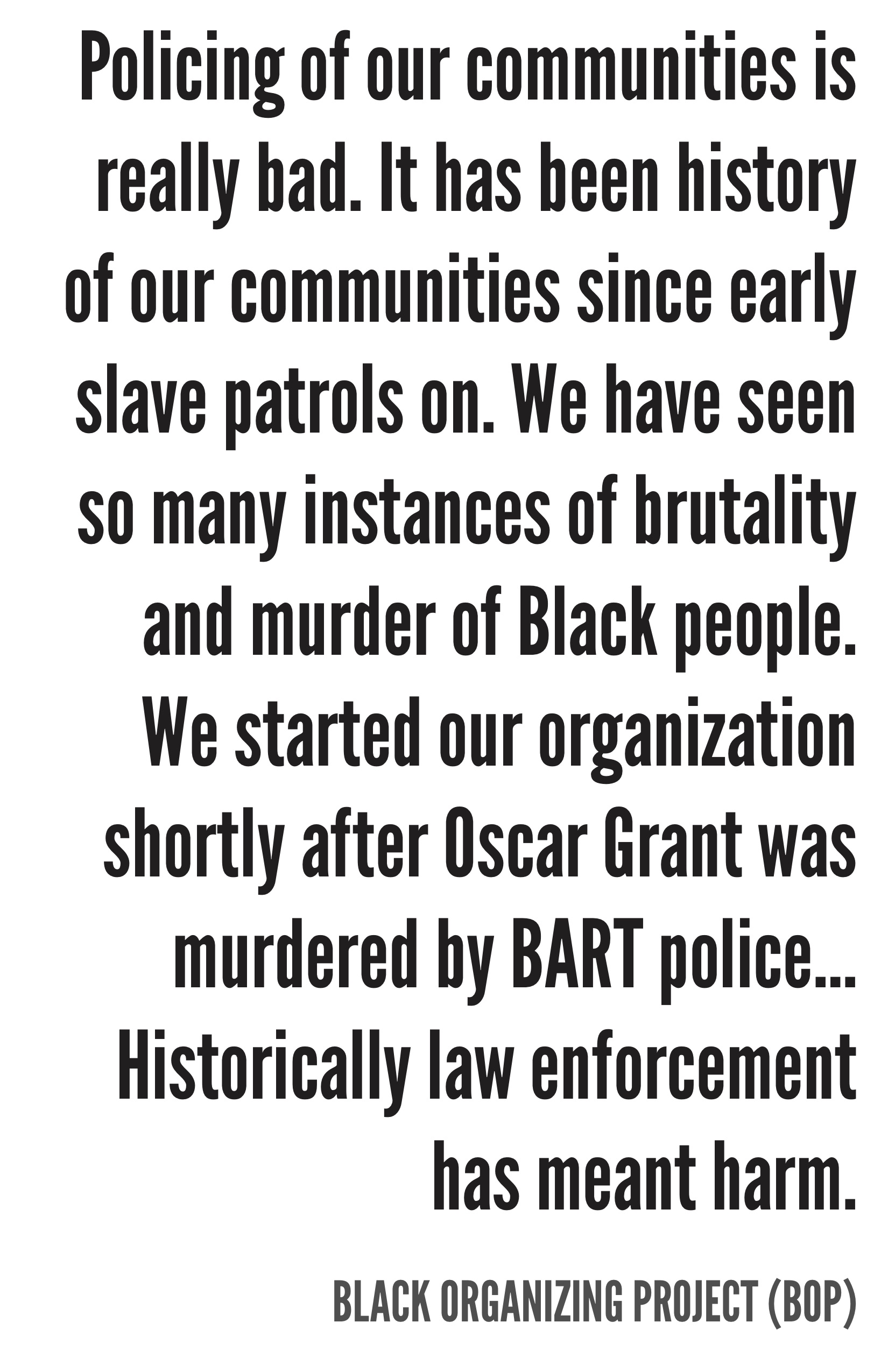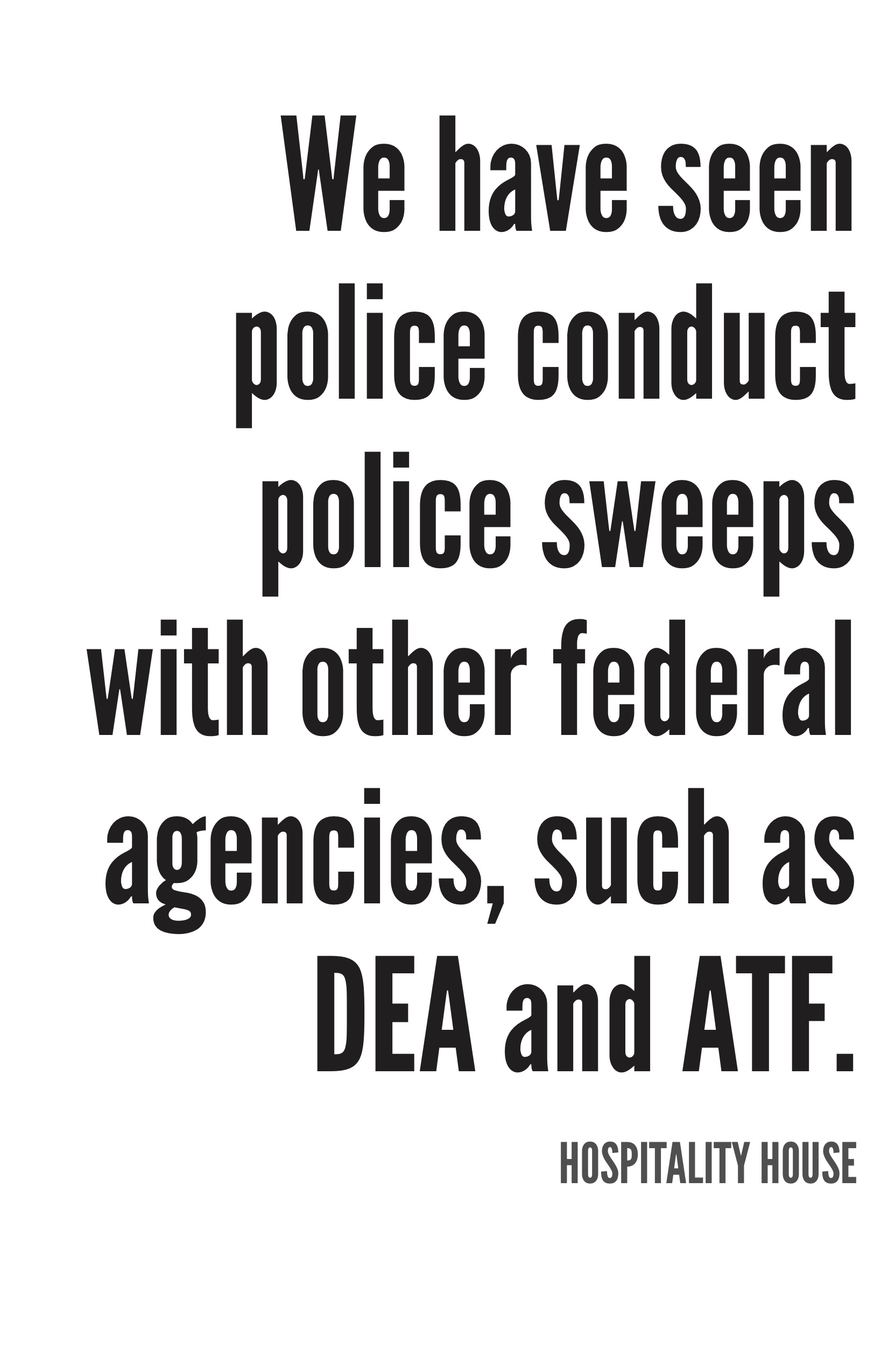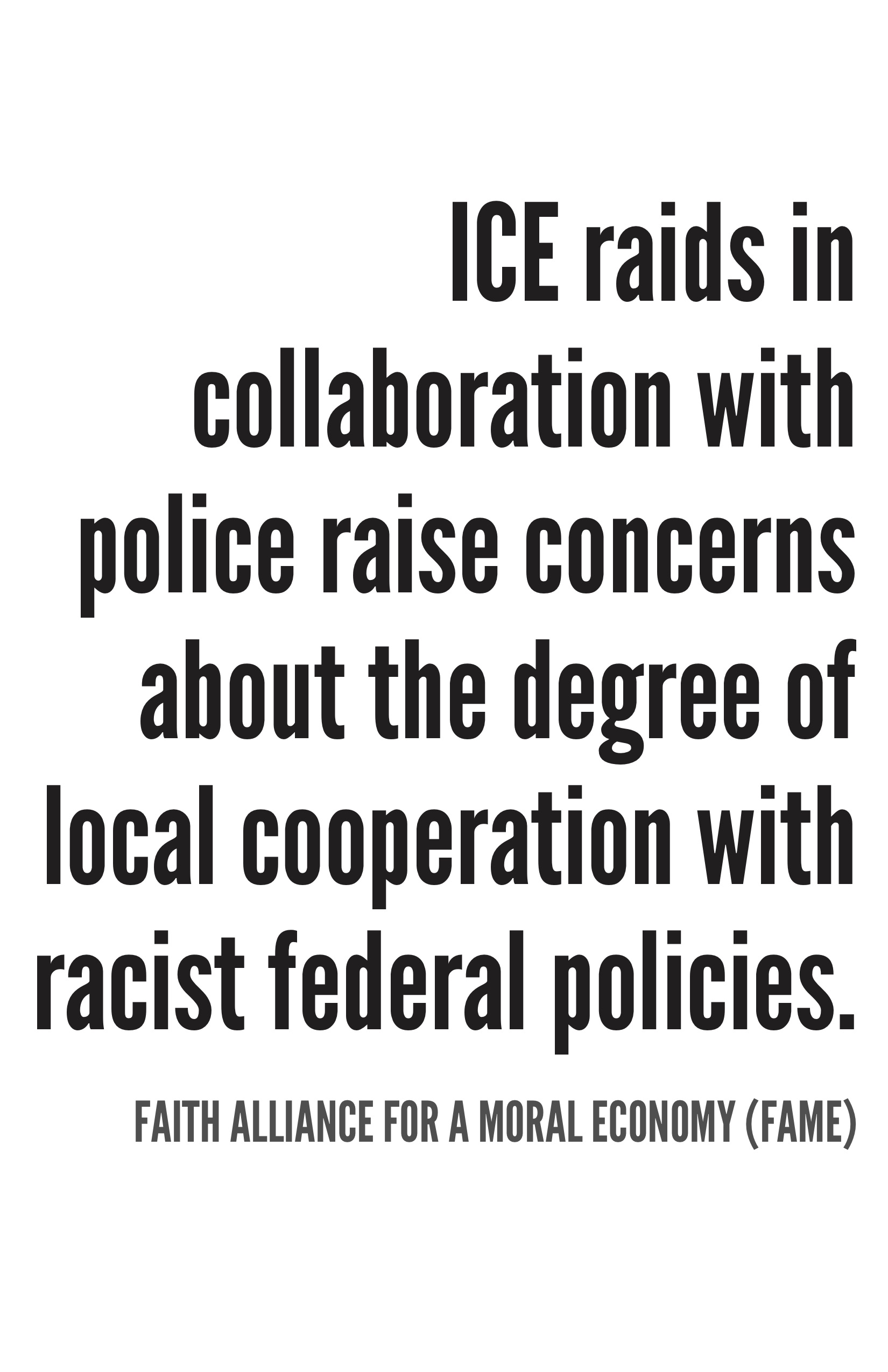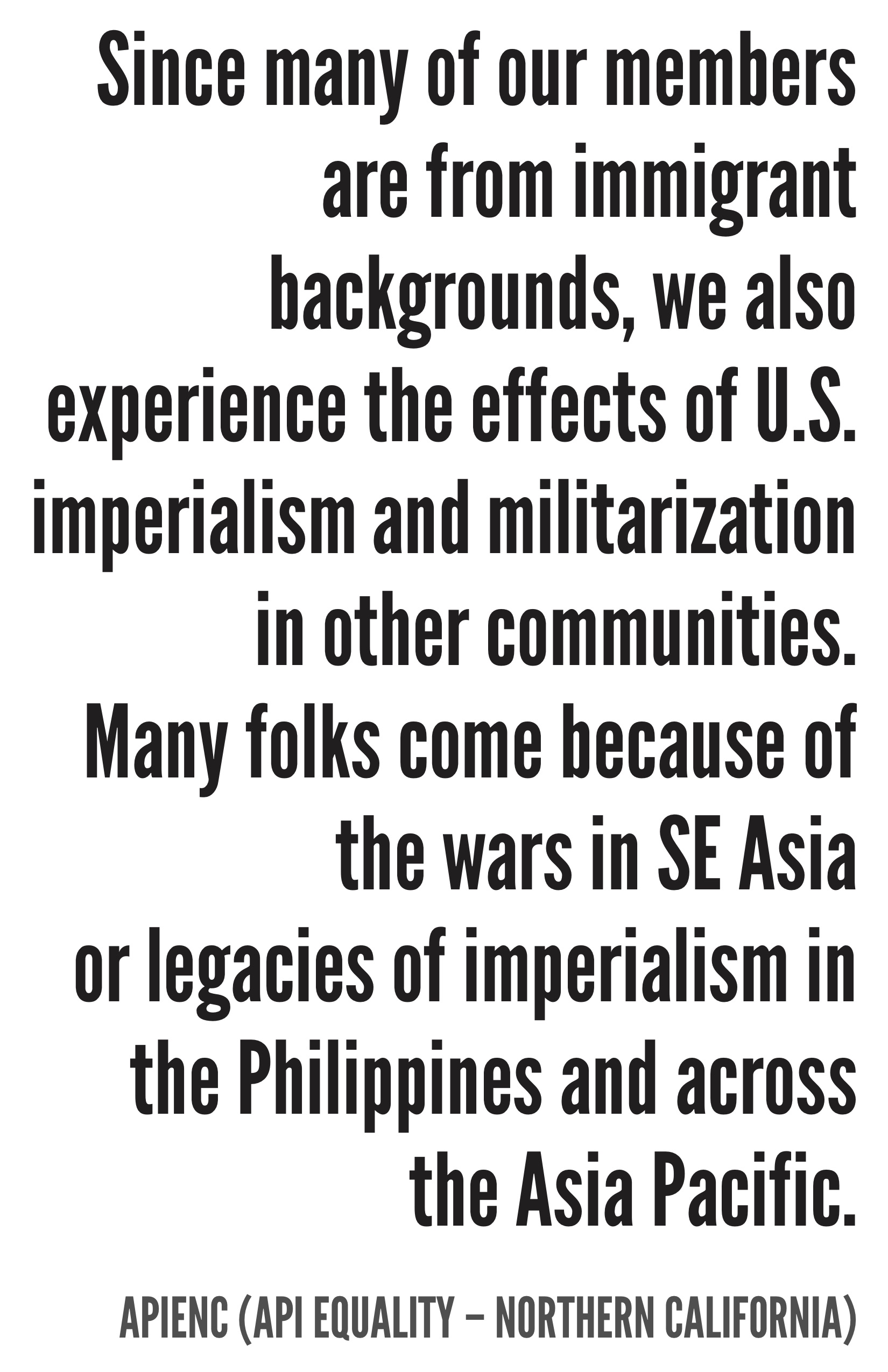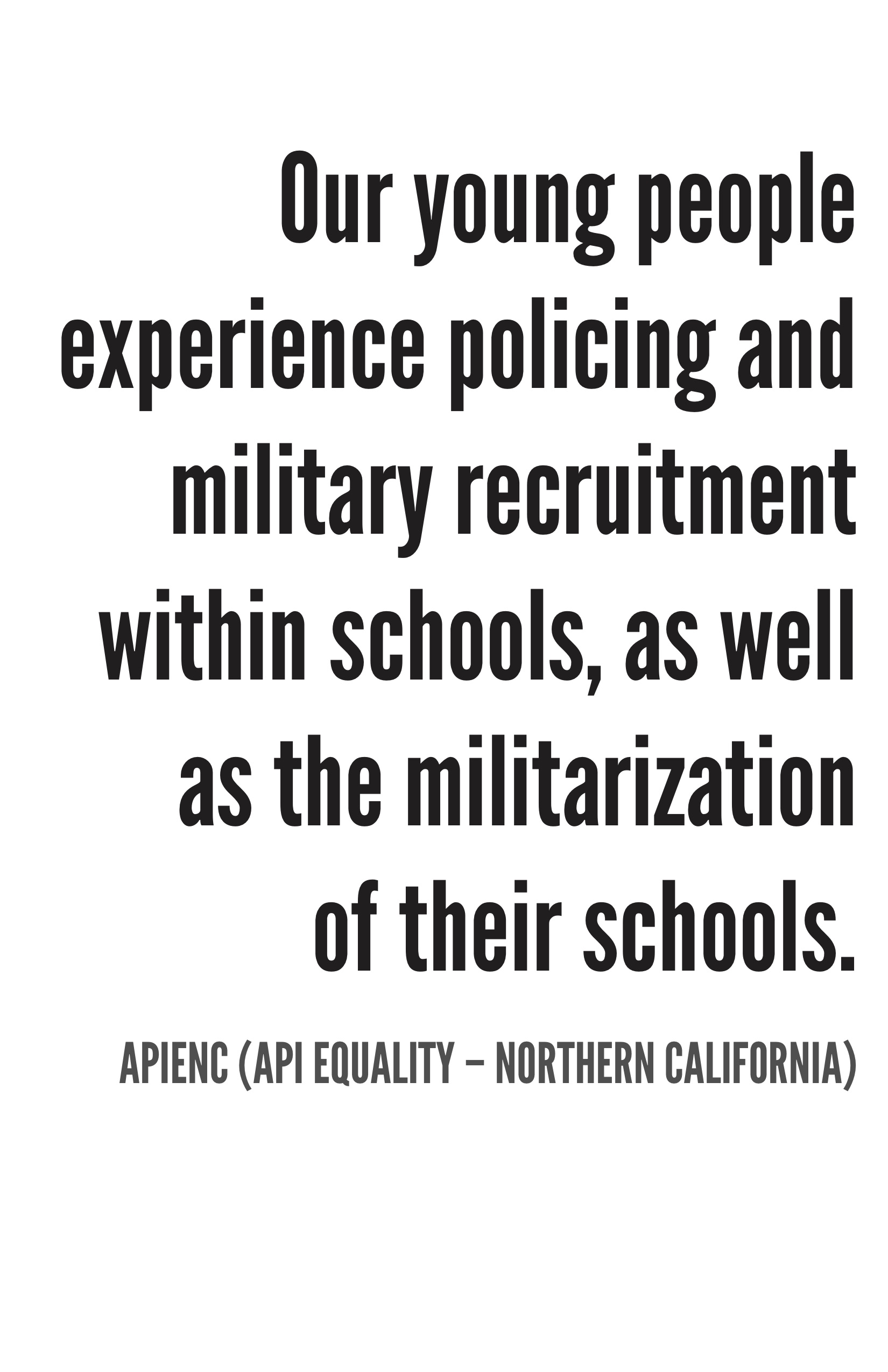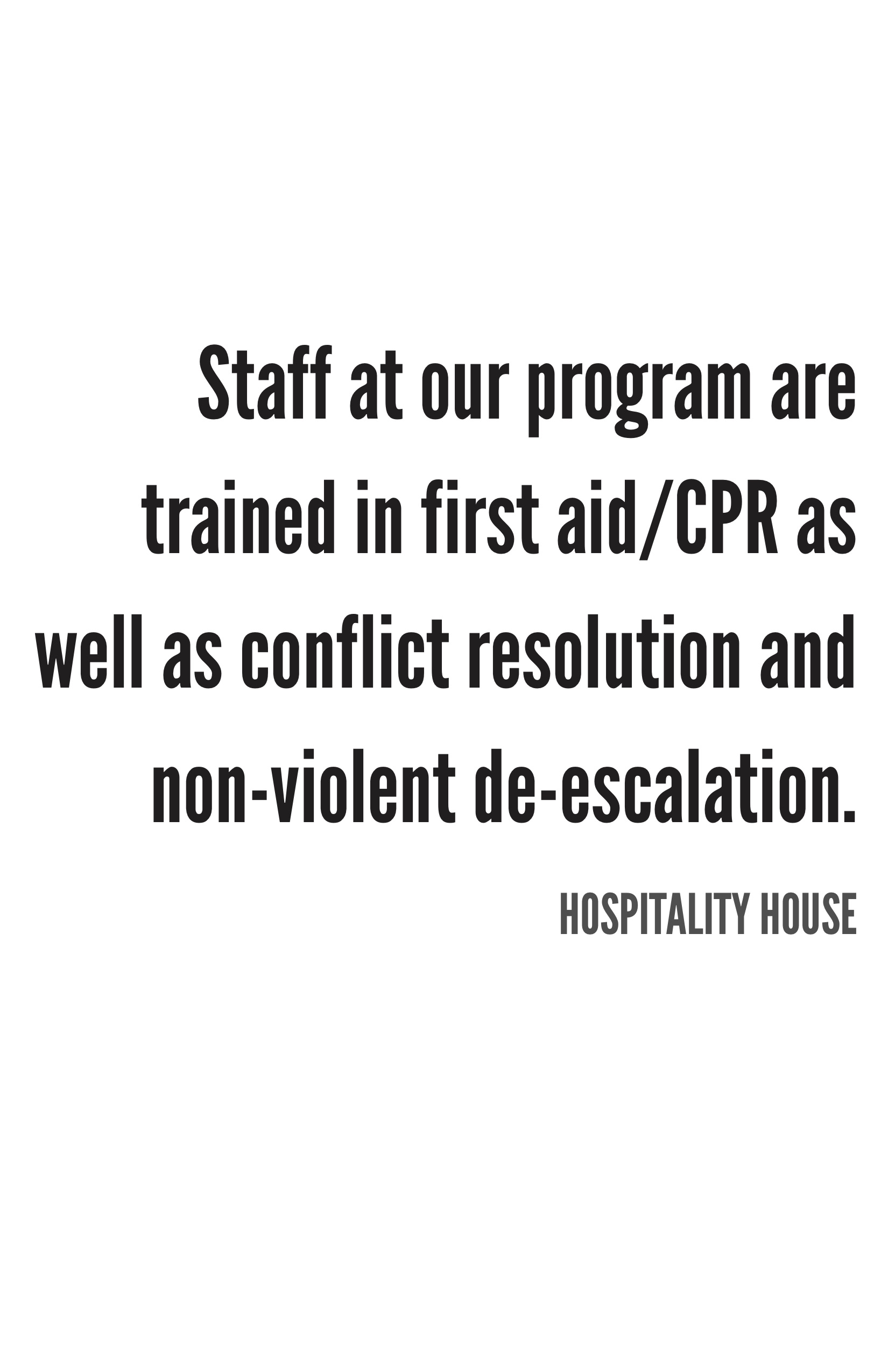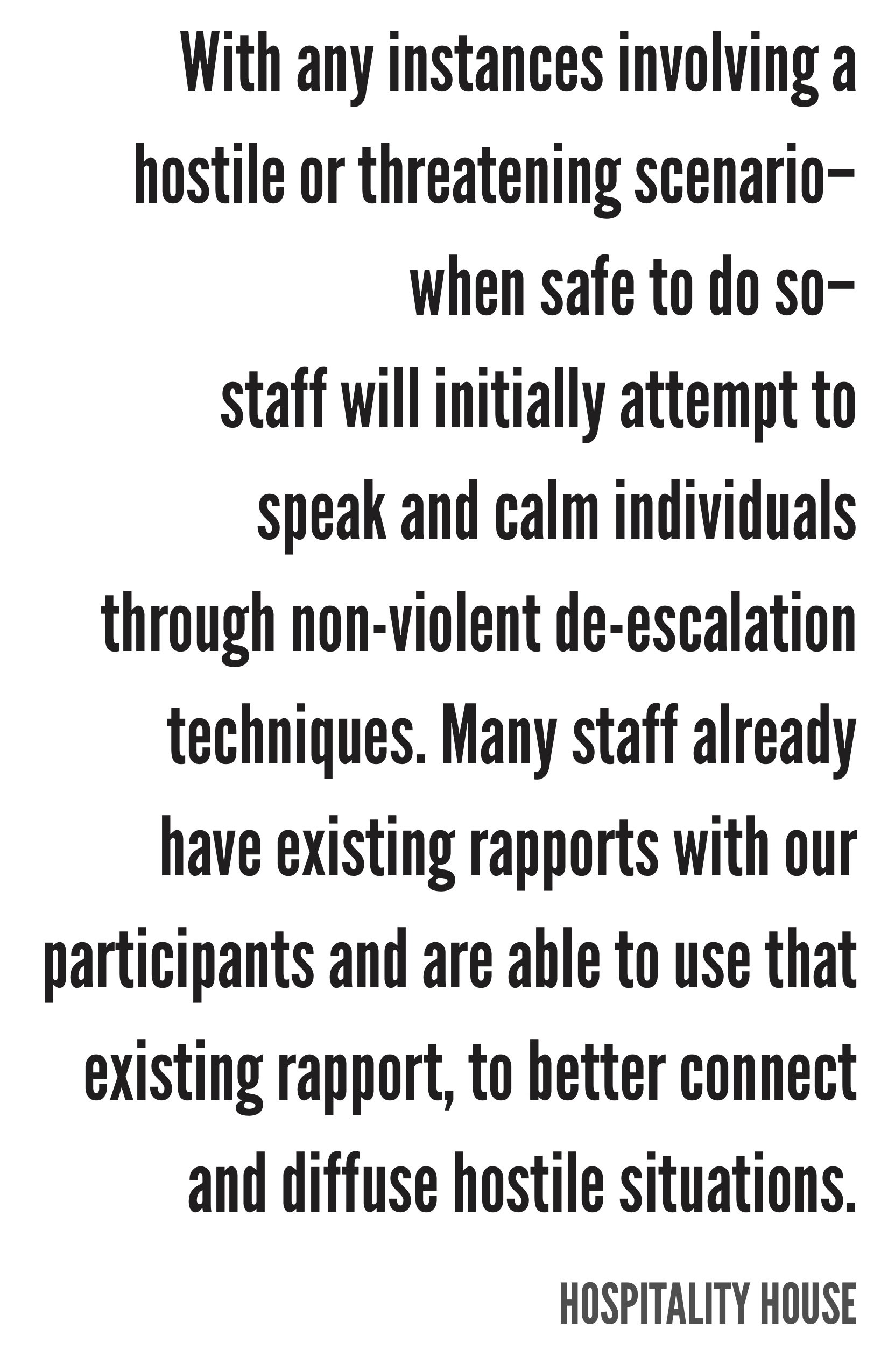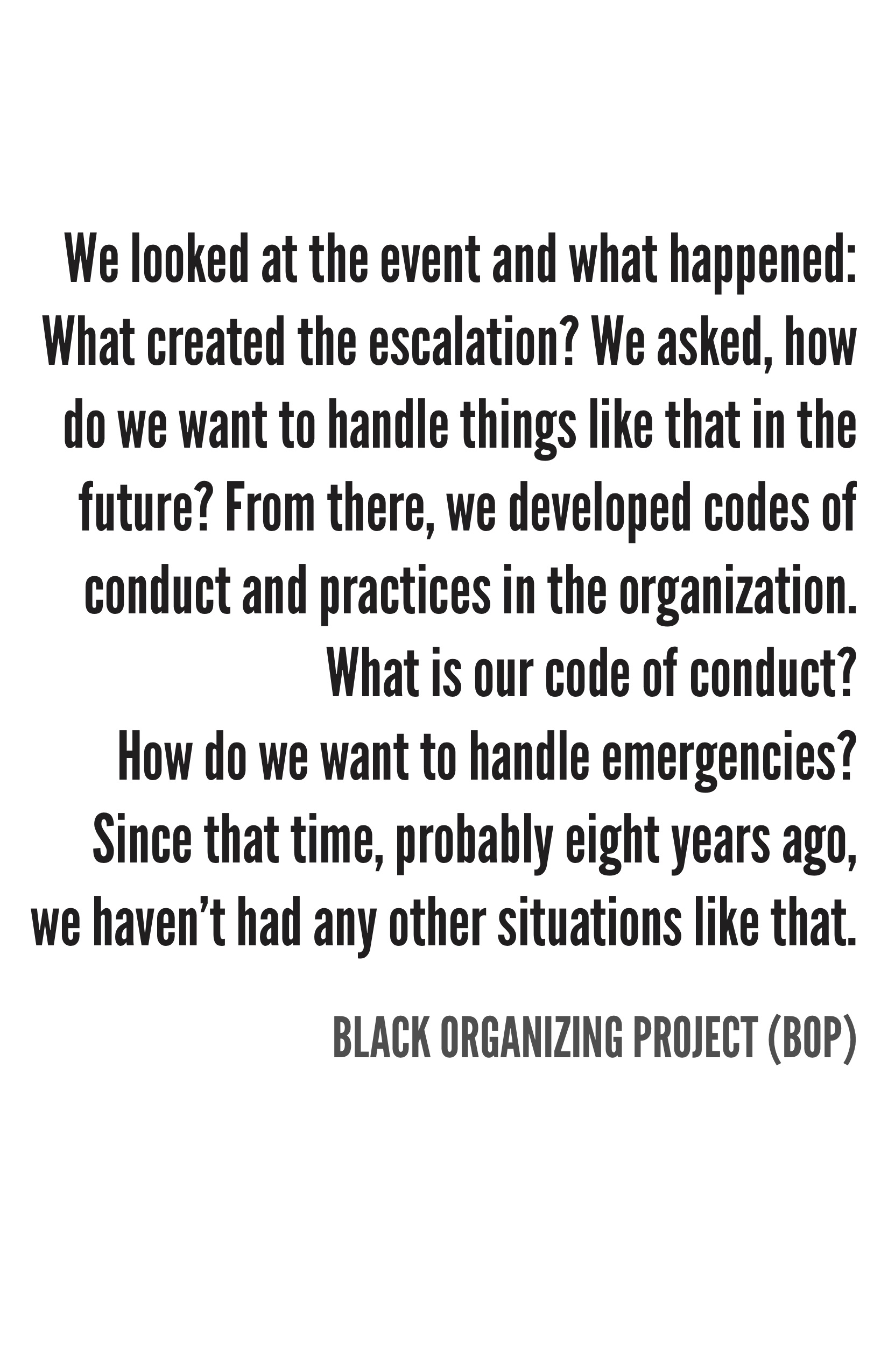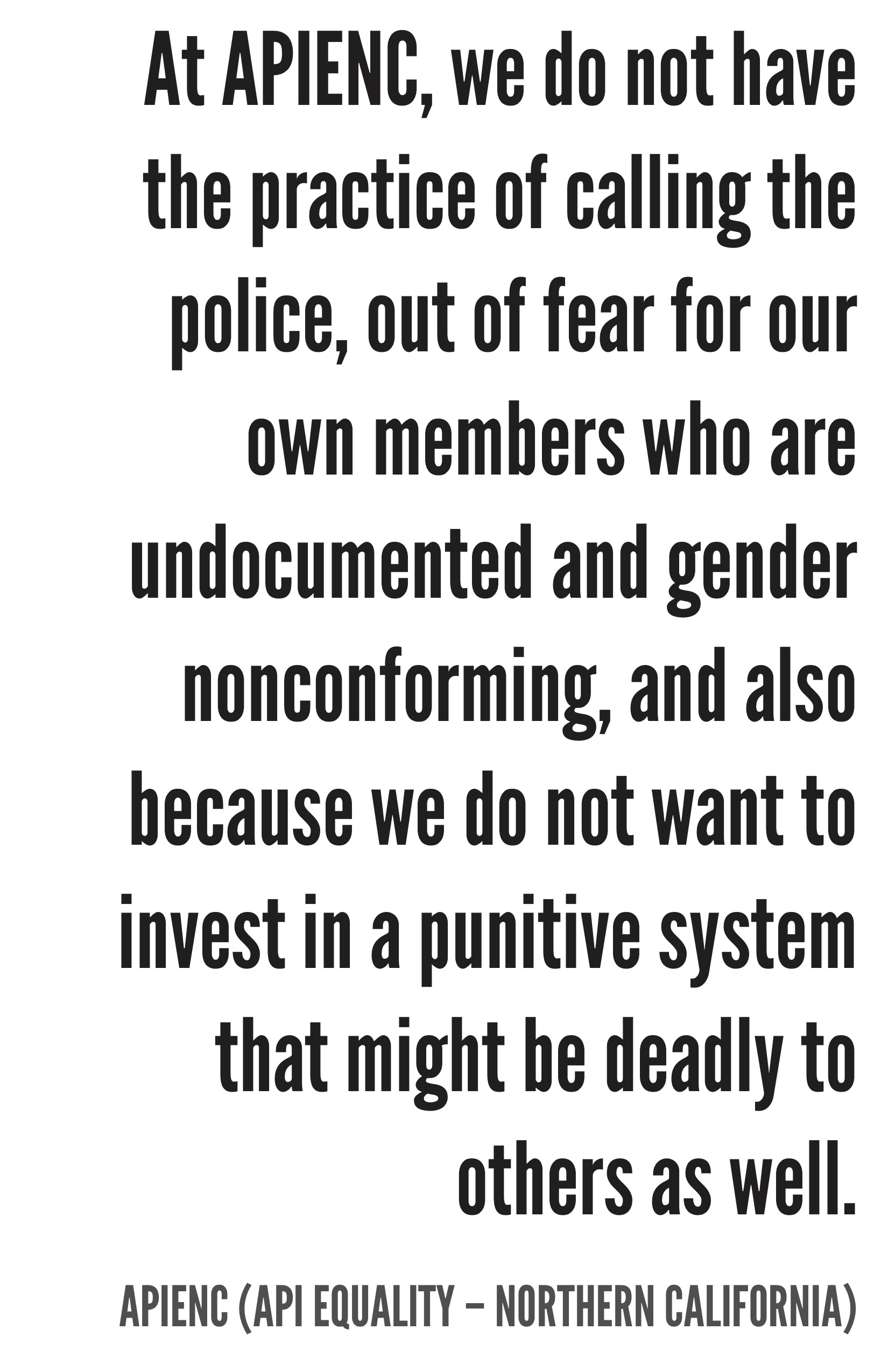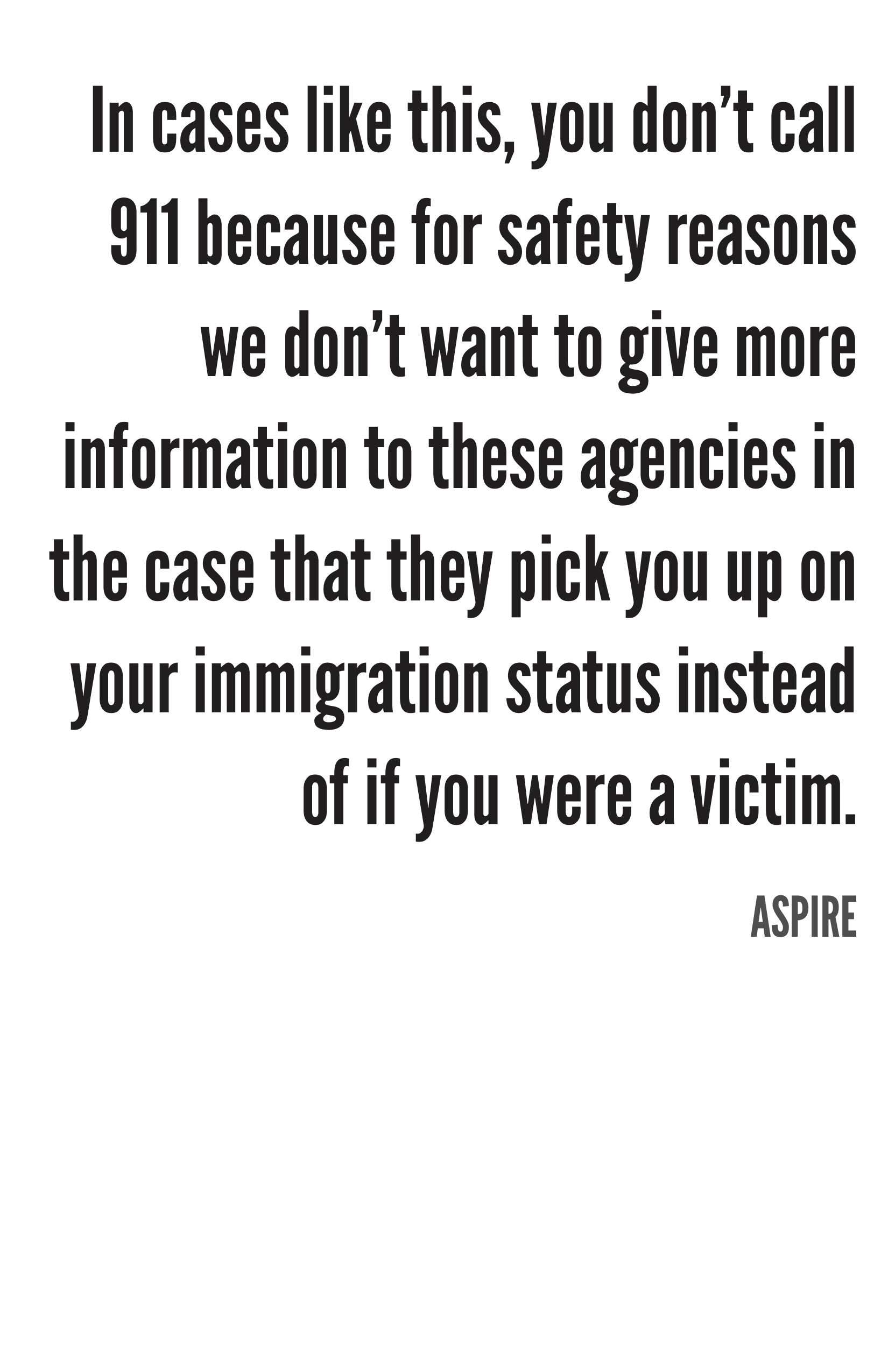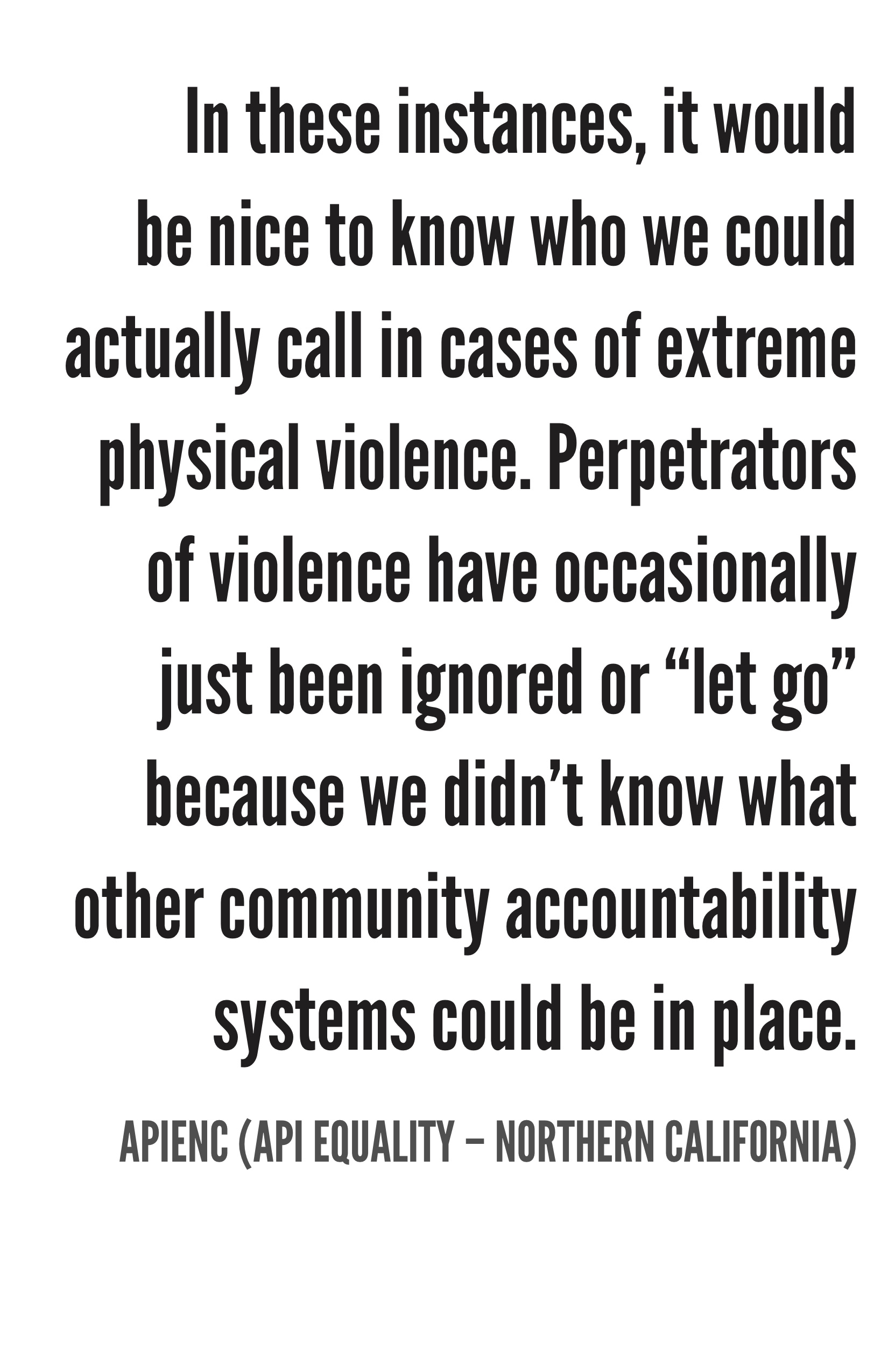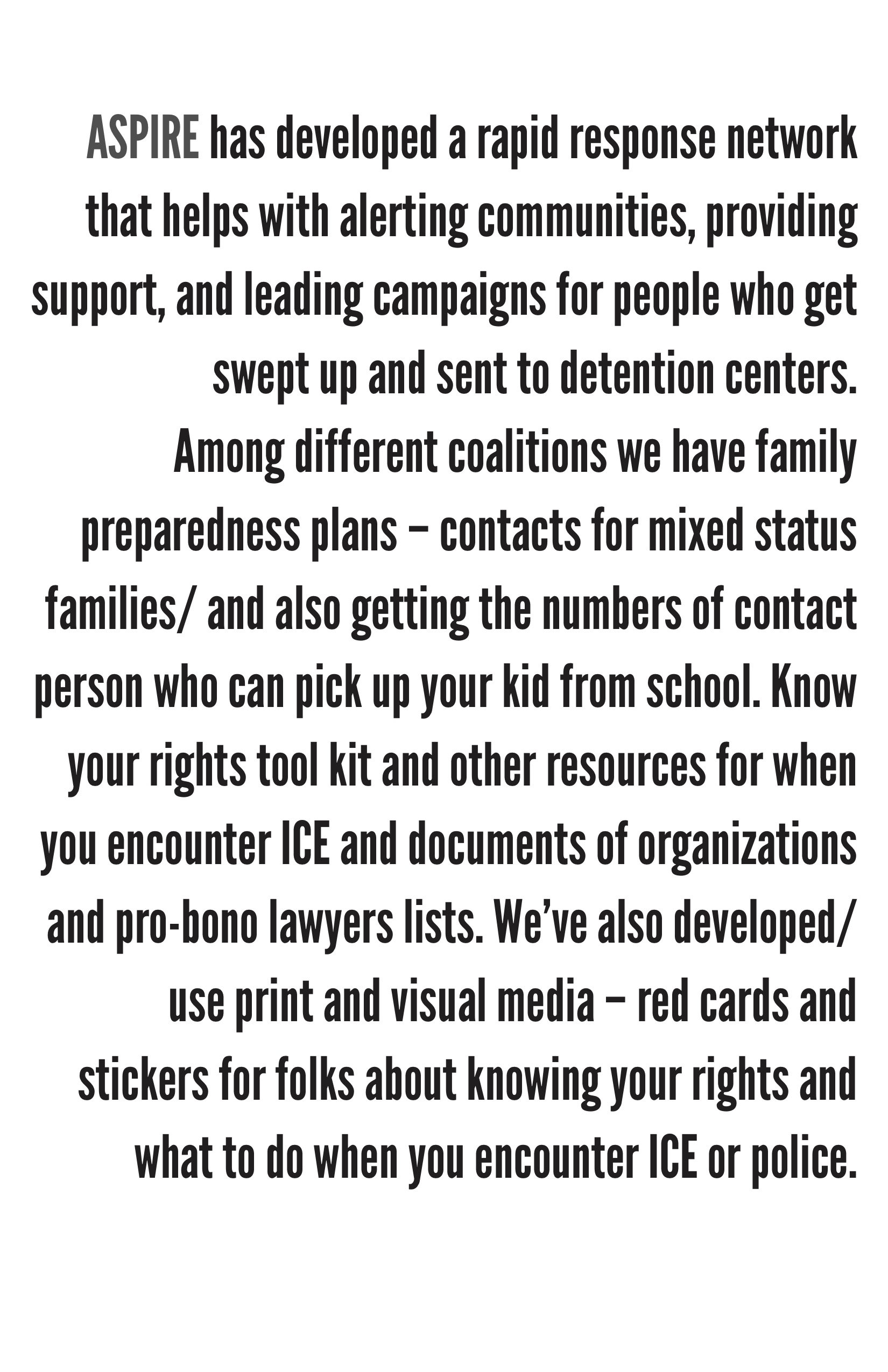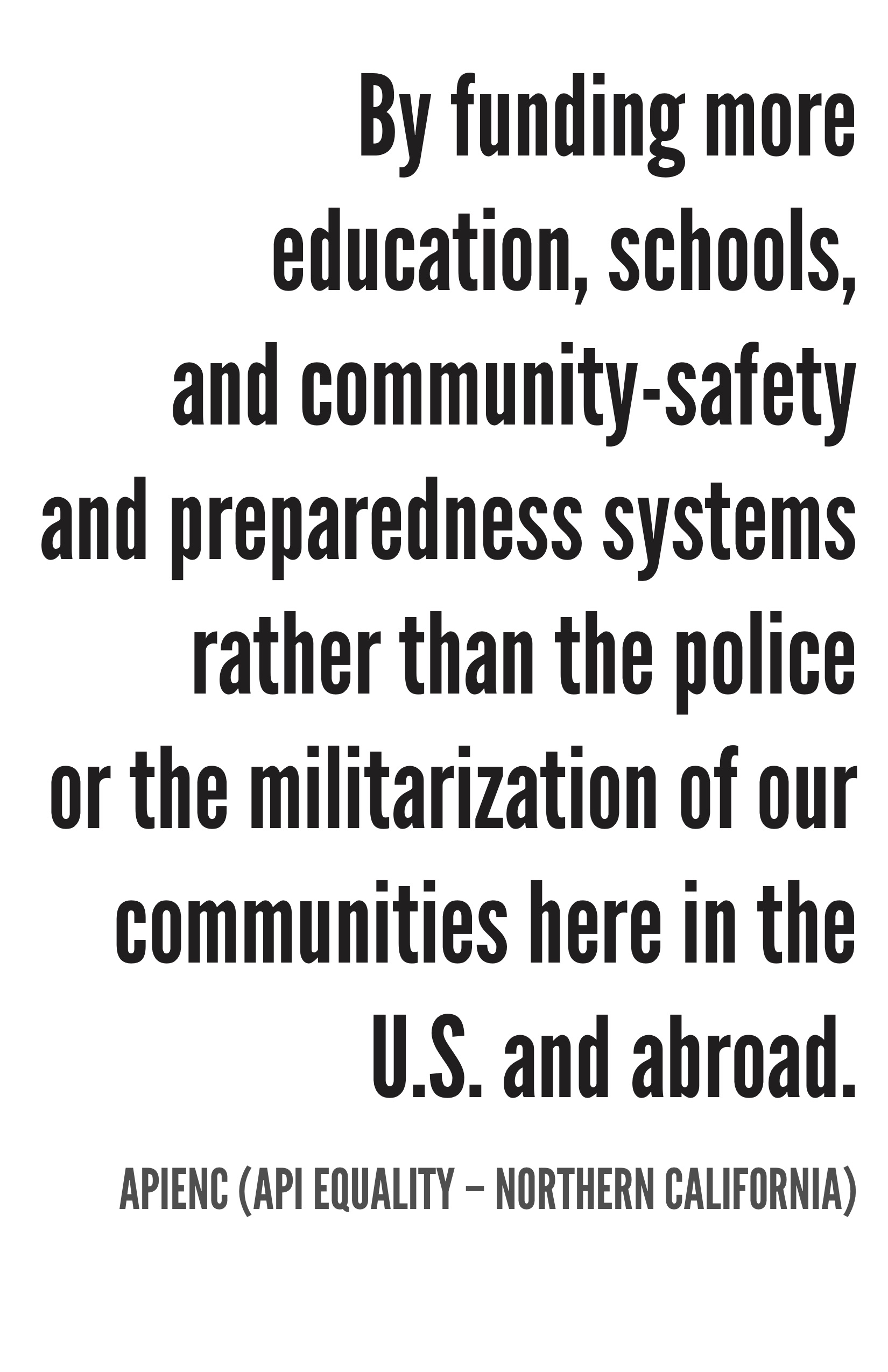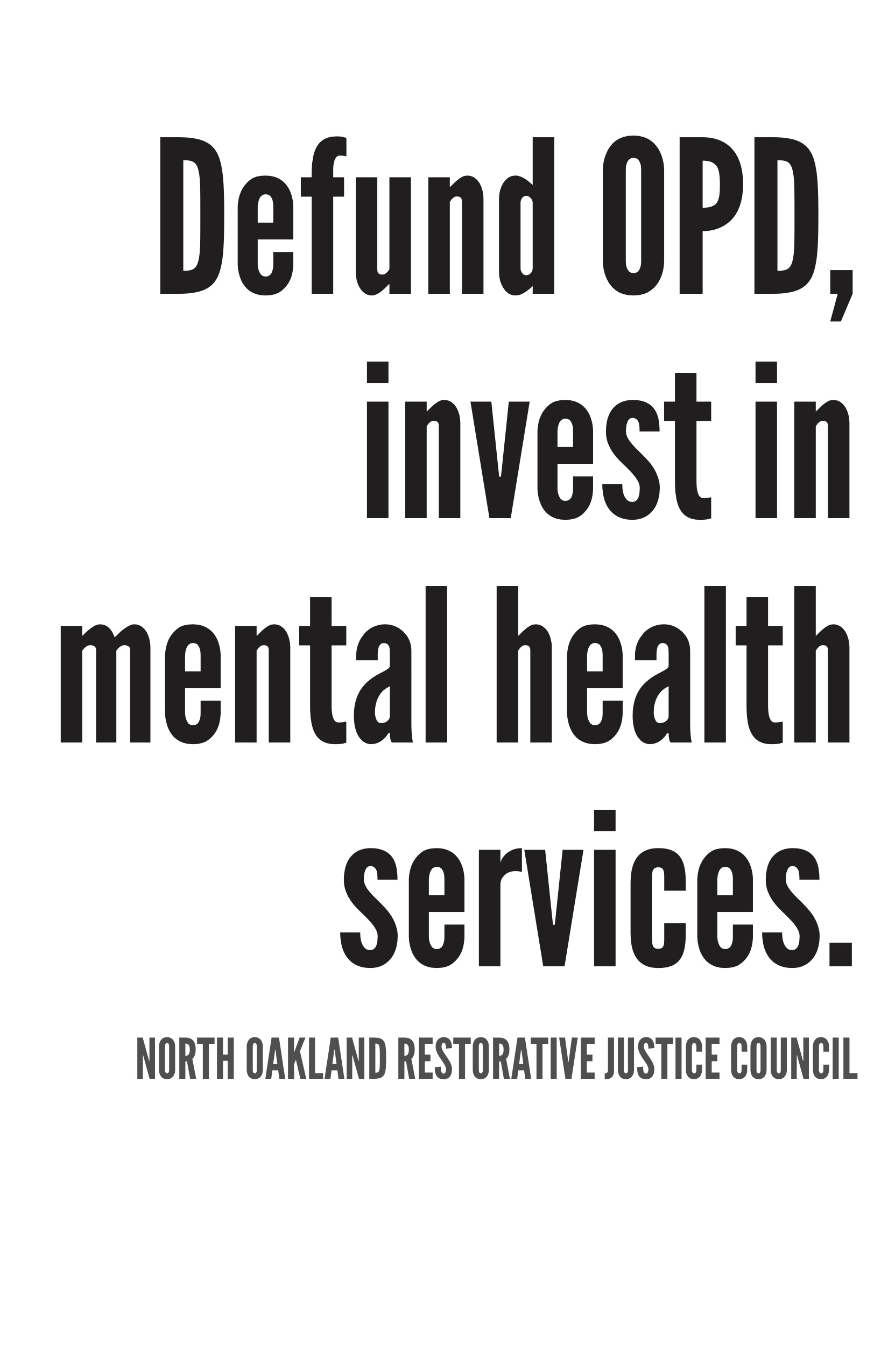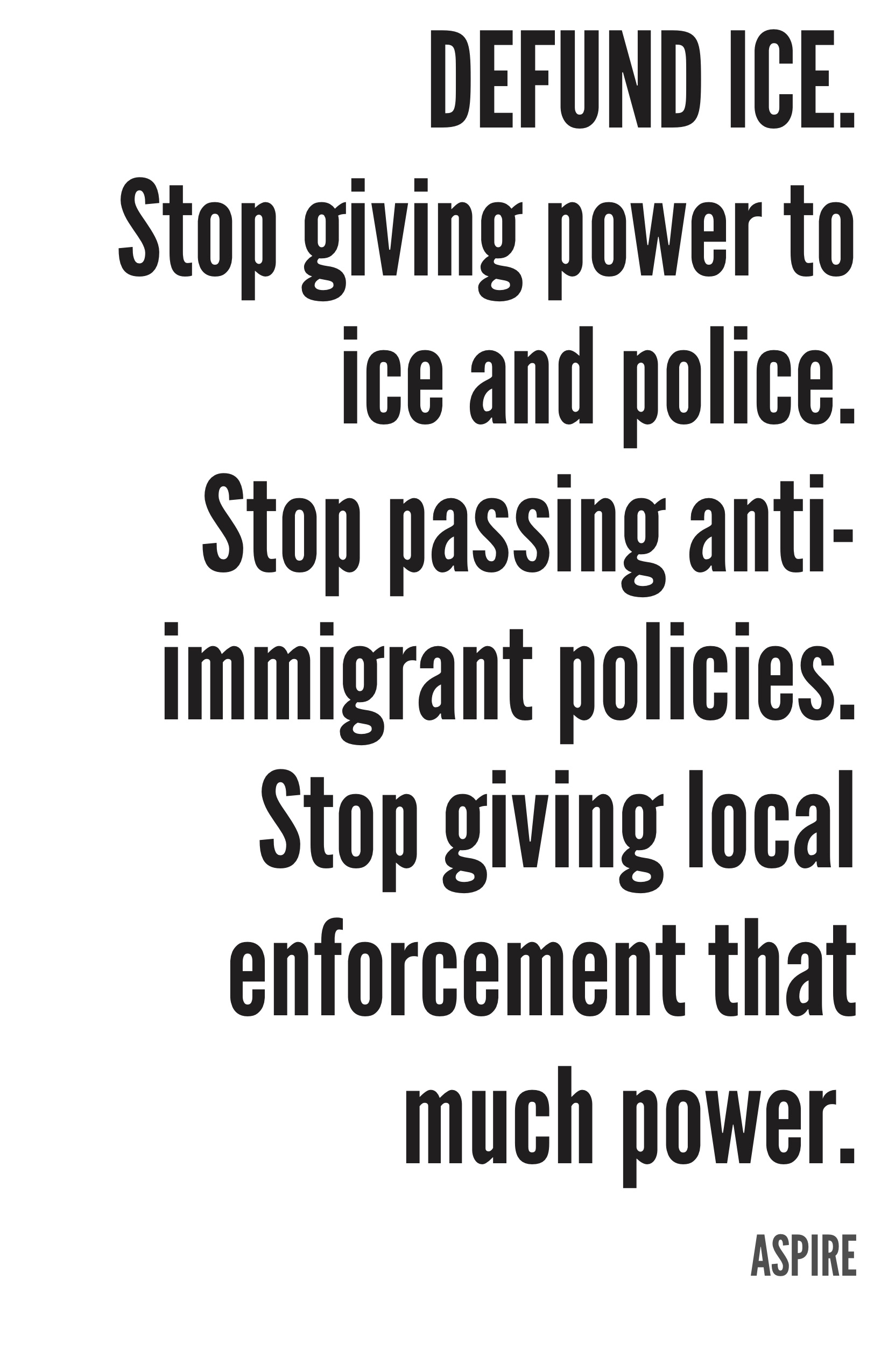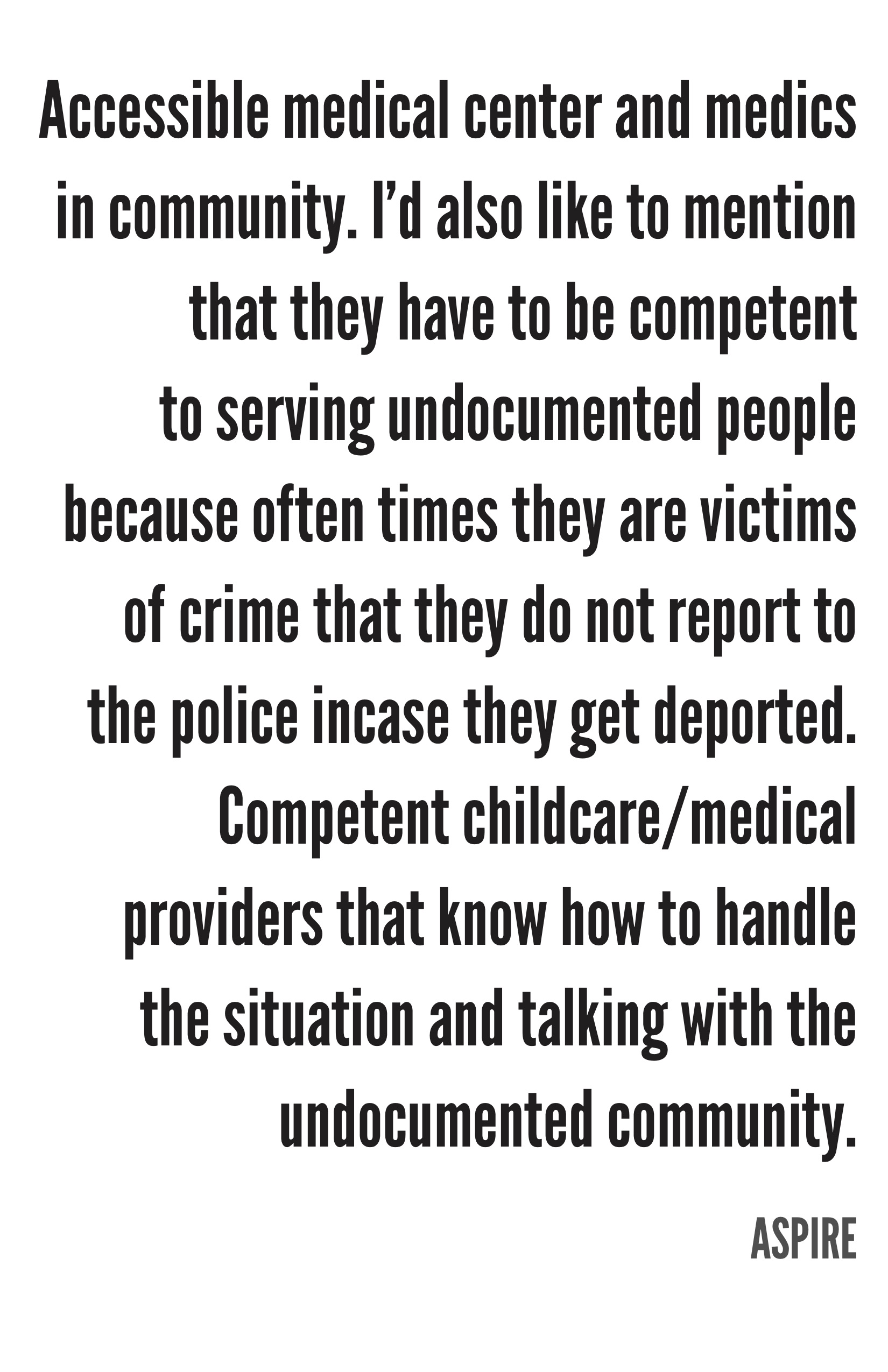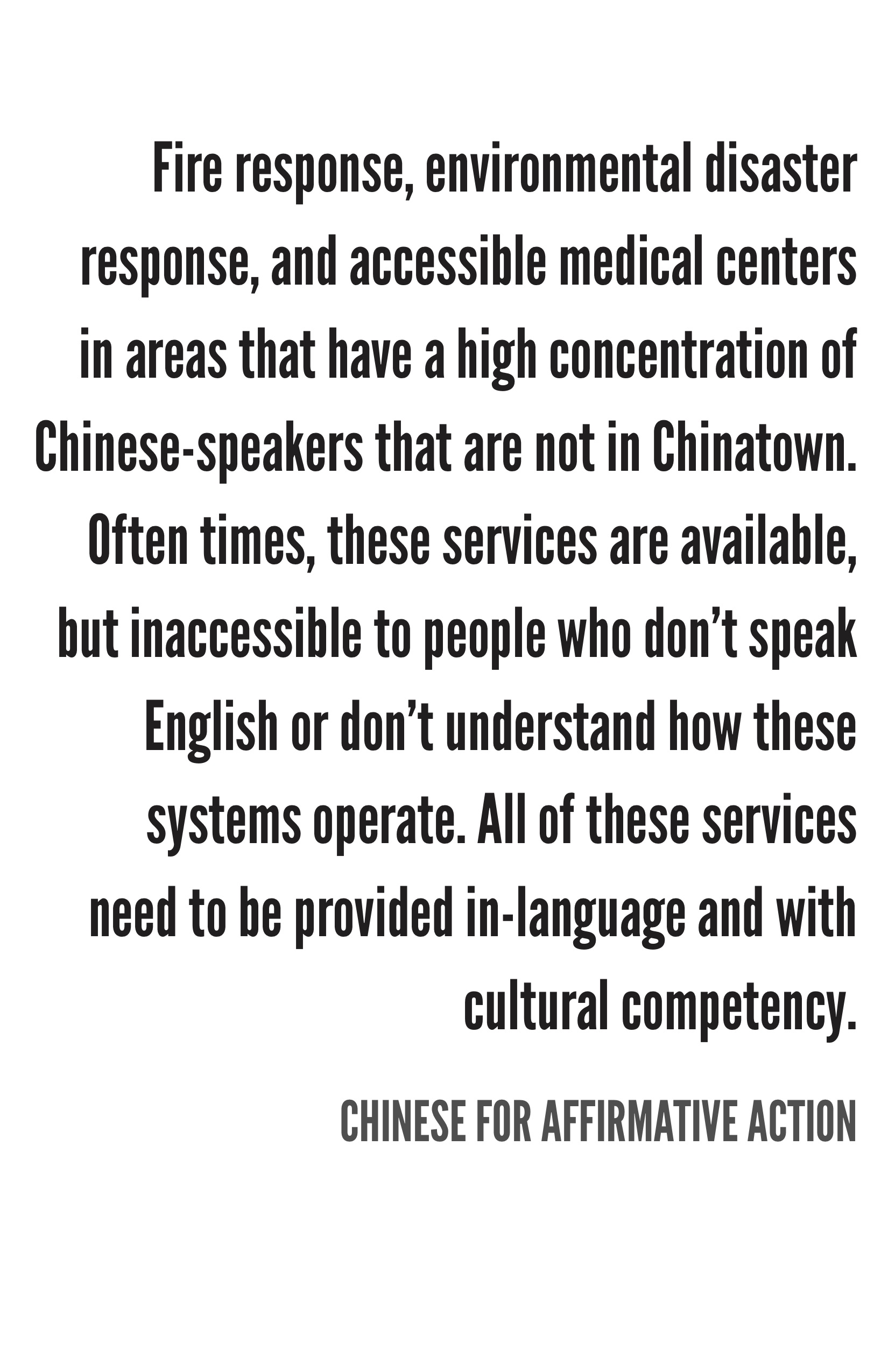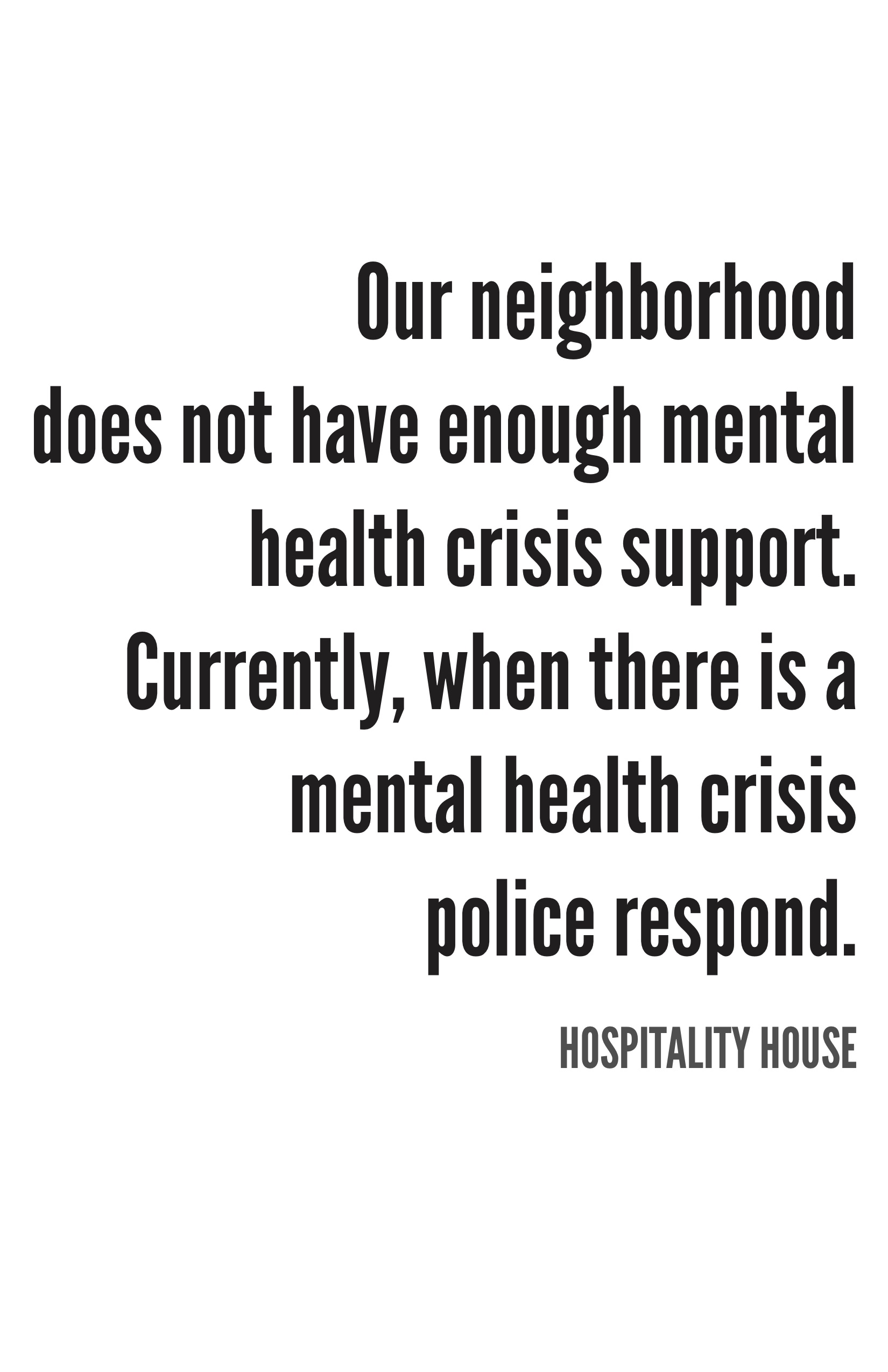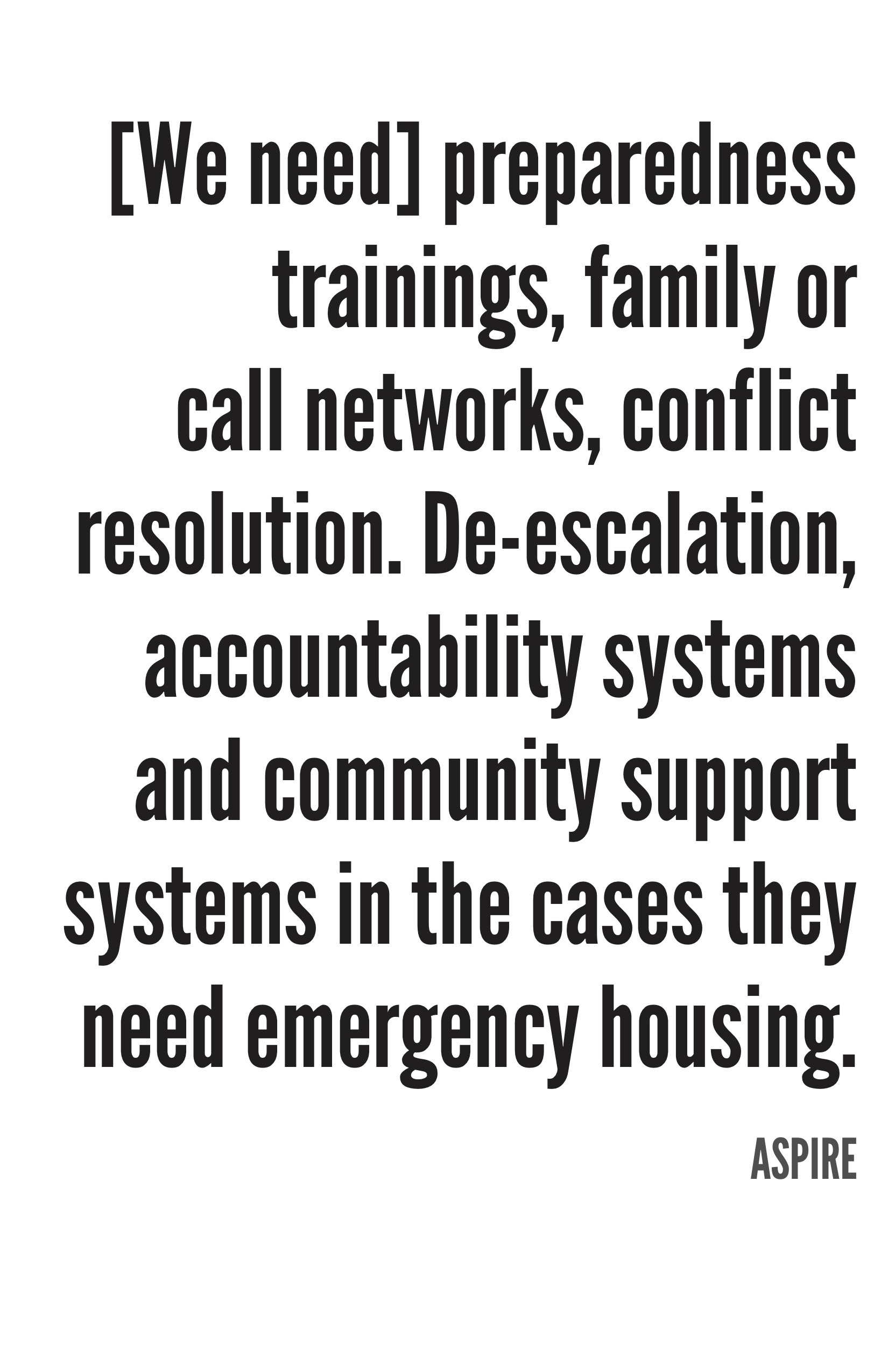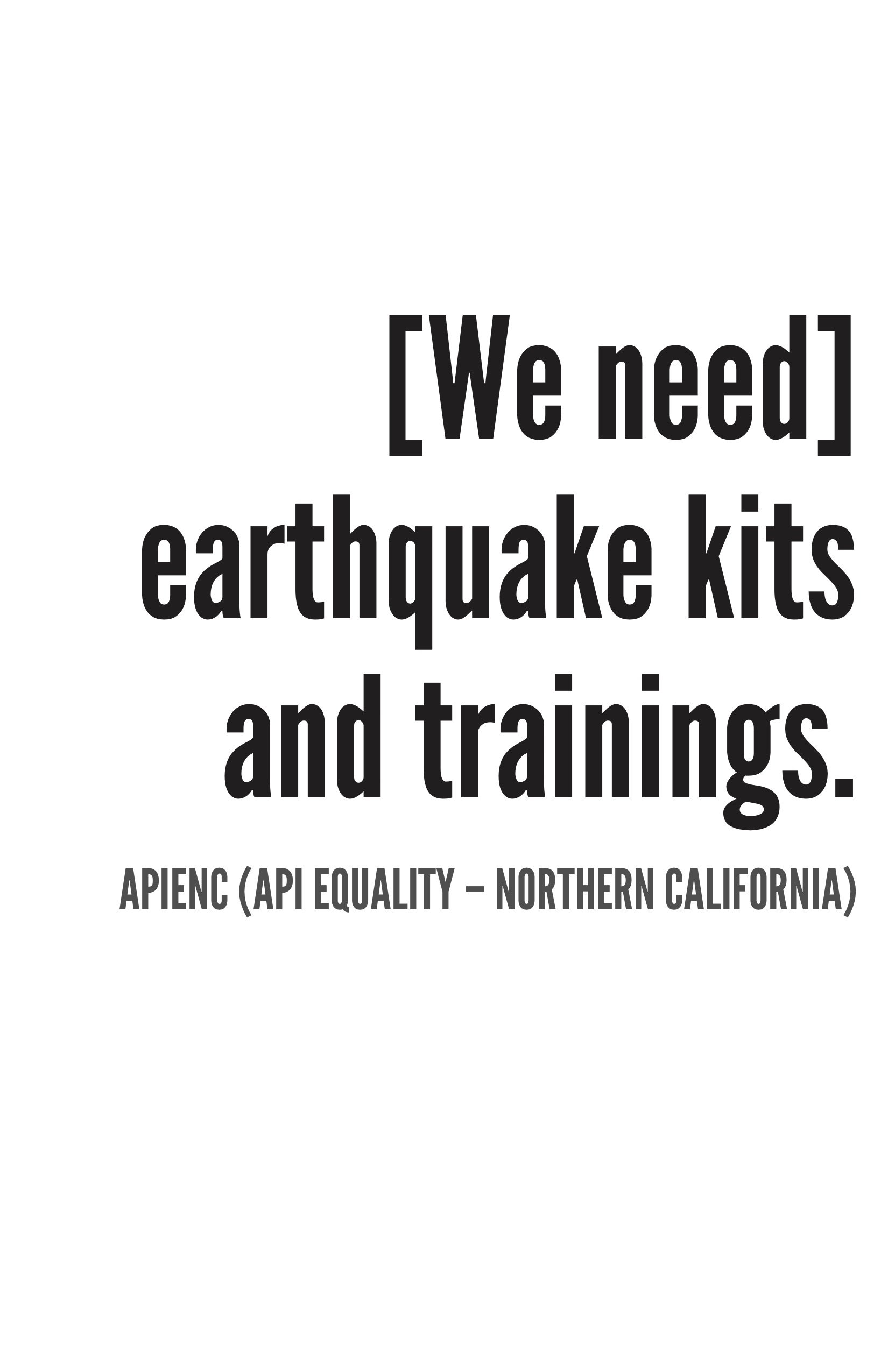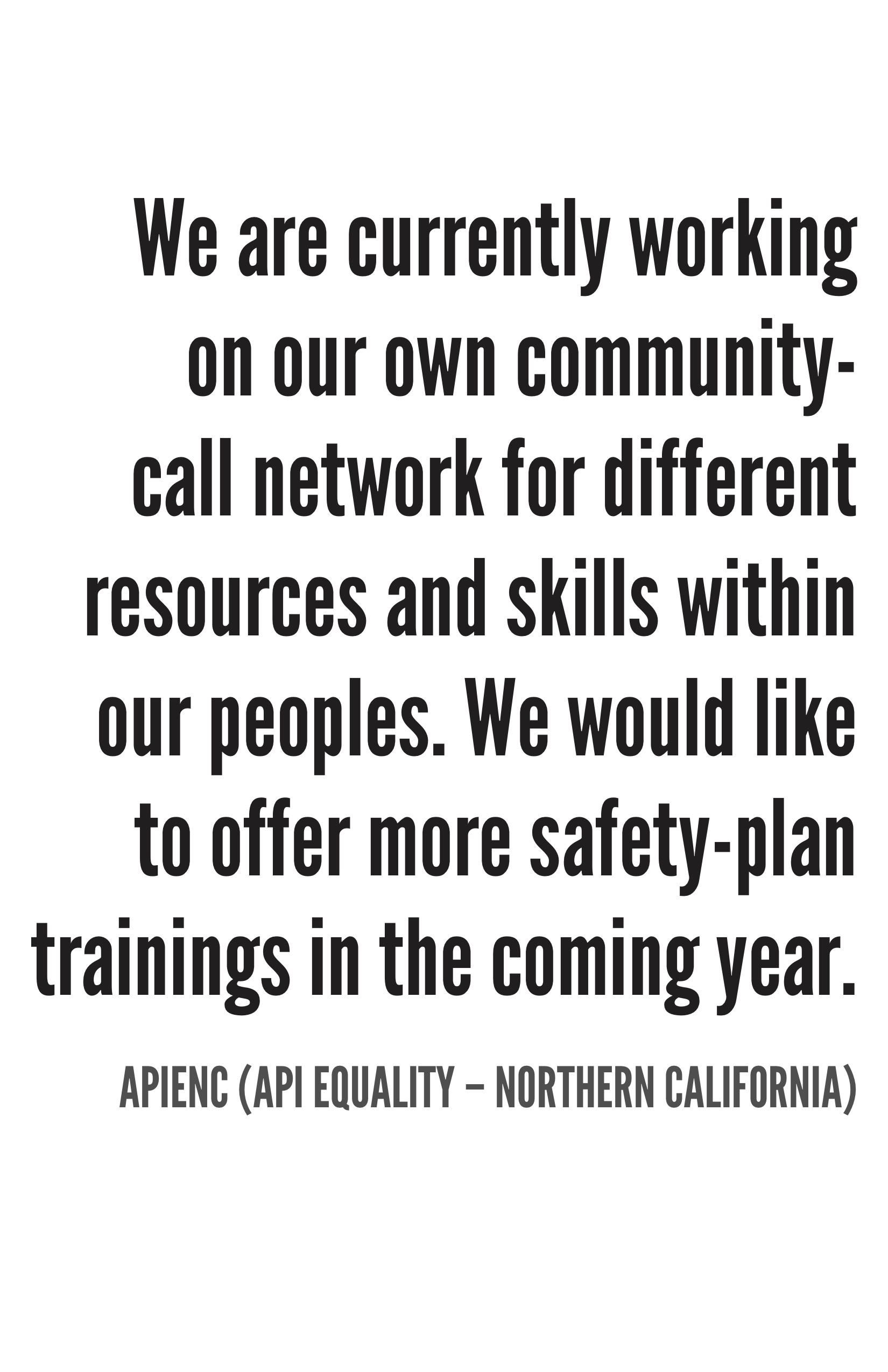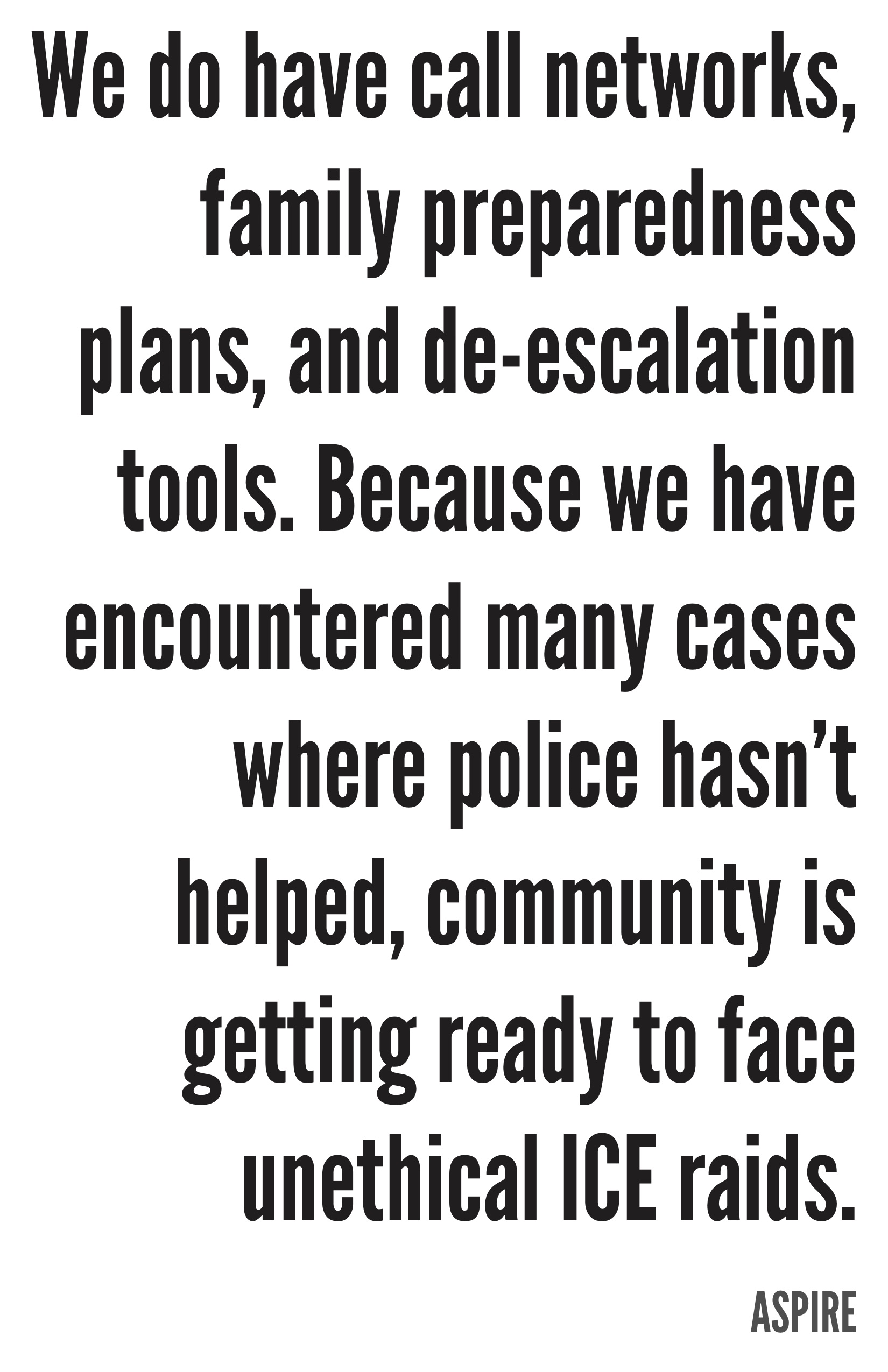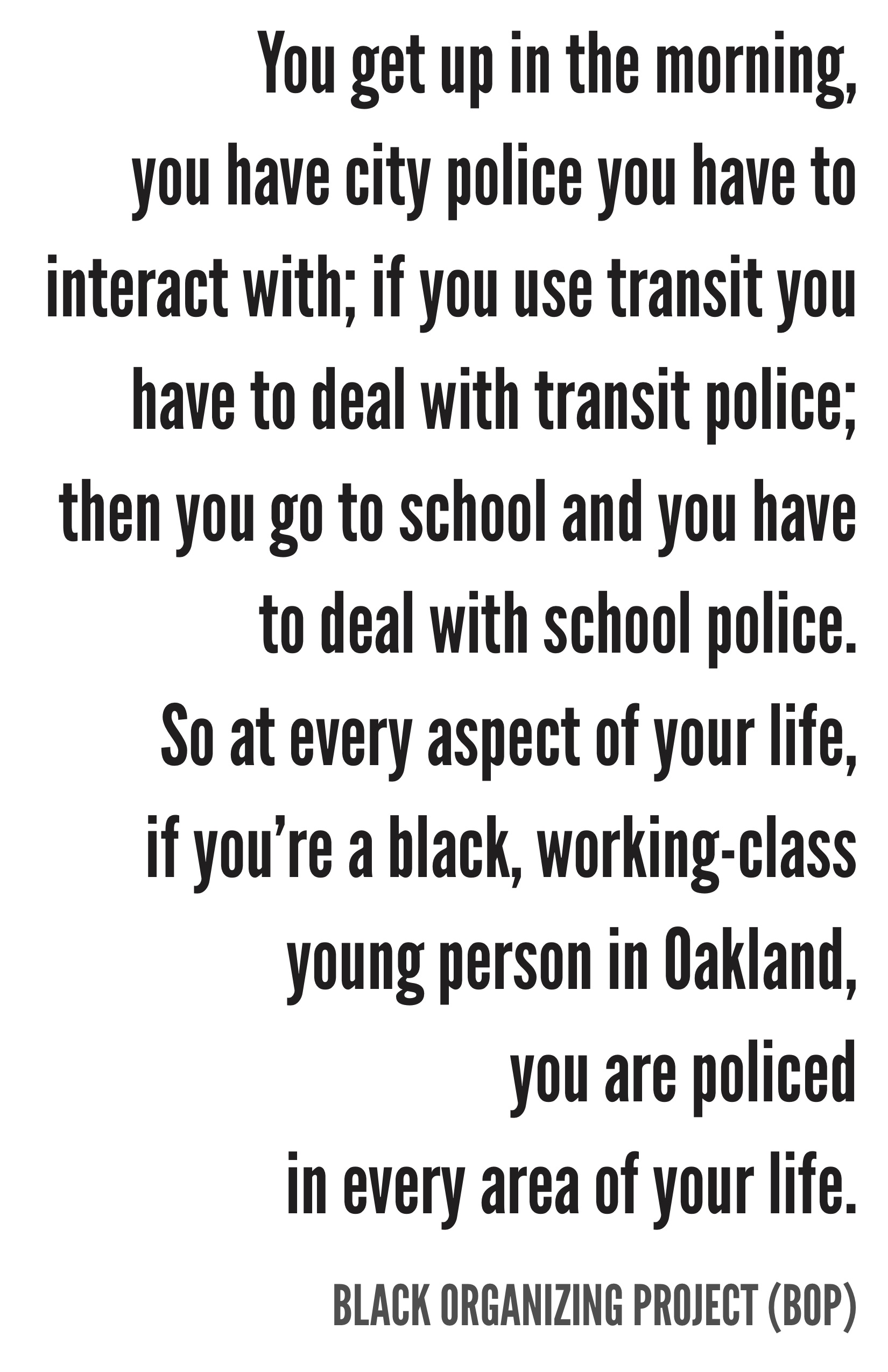BACKGROUND
Poster by Dignidad Rebelde
Since 2013, Critical Resistance has been part of a campaign called Stop Urban Shield that is fighting to halt the militarization of policing, emergency preparedness and disaster response.
In 2017 Critical Resistance decided to begin a second Power Project with a focus on emergency preparedness—to provide analysis on militarization of emergency resources, to identify what emergencies communities face, and to amplify what life-affirming skills, resources and tools people need to handle emergency events or crises. This is OPP #2.
People First! is our preliminary people's report on police militarization and emergency preparedness. Below is a summary of the research and findings. You can download the PDF here or view it at the bottom of this page.
We are still in the process of developing out this Power Project (OPP #2: Emergency Preparedness), and we invite you to get involved. Please email PowerProjects@CriticalResistance.org or call 510-444-0484.
Exciting campaign update: On March 23, 2018, CR Oakland and the Stop Urban Shield coalition defeated Urban Shield! The expo will take place in 2018 for its final year, and in 2019 we are going to bat against the Sheriff to determine what emergency preparedness resources and trainings Alameda County will invest in. Our goal is to push for people-centered emergency preparedness trainings, resources and leadership without law enforcement involvement. OPP #2 will remain ever crucial to developing a stronger common sense that we must invest in people and communities—especially those most vulnerable to crises—not militarization.
What We Found: Emergencies & Policing
The impact of policing and police profiling on communities
- Groups and organizations identified that their communities are impacted daily by the presence of policing and its attendant violence. Themes that emerged across organizations included:
- Police presence and contact is pervasive in public resource sites (schools, hospitals, as well as public transportation) and public spaces (streets, neighborhoods).
- Organizations were especially aware of police profiling and harassment targeting youth of color, youth in sex trades, transwomen of color, immigrants and people who use drugs.
- Communities experience multiple scales of policing, not just singular agencies. Groups specifically cited local police collaboration with county, state or federal agencies (including, for example: local police collaboration with Alameda County Sheriff; SWAT teams; Immigrations and Customs Enforcement / ICE; Drug Enforcement Agency / DEA; or Alcohol, Tobacco and Firearms/ATF).
- Six organizations identified that militarized policing targeting immigrants – in the form of ICE raids, racist federal policies, deportation and detention – as a threat their communities face.
- Militarized policing was identified through military tanks in neighborhoods; SWAT house raids with military weaponry; military armed police in schools, hospitals, and on public transit (BART, Muni, and ACT); and block shut-downs and barricades patrolled by law enforcement with tactical military gear.
- Militarized policing is not new or locally-exclusive for Black, Asian Pacific and Raza communities whose elder generations have lived through U.S.-led wars, imperialism and militarization abroad or here in the U.S.
- Policing leads to arrests, court sentences, and, ultimately imprisonment. For communities that are impacted by imprisonment, policing represents the threat of this harm, which fractures communities and divides families.
A number of organizations shared skills and tactics they already have in place to respond effectively in an emergency without law enforcement involvement.
These included:
- skilled de-escalation and peacekeepers,
- mechanisms to review emergencies and establish protocols,
- rapid response networks, and
- healthcare trainings.
What Communities Need to Face Emergencies
Communities identified what they need to face the emergencies and hardships they experience. In summary, these themes emerged:
- Housing and Shelter: Affordable Housing, Emergency Shelter and Addressing Displacement / Gentrification
- Relief from policing, including ICE
- High speed and accessible medical response and care that can competently serve undocumented, queer, gender non-conforming people, communities of color (with varying levels of police or prison records) and immigrant communities without threat of criminalization.
- Community-based and Family Networks for Community Crises and Interpersonal Violence
- Emergency Preparedness, Response Resources and Crisis Skill
Recommendations
We asked people what skills, resources and practices could be built, created or strengthened to fill these needs, which generally fell under:
- What people are already doing to prepare for emergencies (see previous).
- What people need less of to withstand emergencies.
- What skills, resources and practices communities need to increase for emergency preparedness.
Across the board, groups want less policing, ICE, incarceration and militarization in their communities.
Organizations called for more trainings, community networks and public resources for community power.
Critical Resistance compiled our survey findings and organized responses by themes and topics. We saw two main categories: 1) trainings for community power and 2) community support networks that provide skills and relationships. The following recommendations are potential investments and projects that could increase community confidence and preparedness to handle the emergencies that they face, without escalating law enforcement involvement.
Trainings for community power
To address conflict and violence, we need trainings on:
- De-escalation
- Community-based conflict mediation
- Community accountability, addressing harm and interpersonal violence without relying on the police
To address medical emergencies and behavioral health crises, we need trainings on:
- Medic, CPR and first aid skills and kits
- Narcan and overdose prevention trainings
- Mental health support and response
- Safety plan trainings for queer and trans folks for getting around on the street, in homes and in transit.
To be prepared for natural disasters, we need trainings on:
- Natural disaster emergency preparedness (and response) skills and resources
- Earthquake preparedness training and kits
- Family and emergency network planning: rapid response and phone trees
To protect communities from policing, we need trainings on:
- Know your rights and legal services
- Community defense, limiting police contact, and response to police and ICE interactions
- How to advocate for one another
- How to respond when experiencing or seeing ICE activity, raids and deportations
- Family and emergency network planning: rapid response and phone trees
Community support networks
Within communities, organizations want to see strong and organized networks of people that are resourced to support one another without fear criminalization or the violence of policing.
Networks
To handle mental health crises.
- De-escalation
- Community-based conflict mediation
- Community accountability, addressing harm and interpersonal violence without relying on the police
To handle acute health emergencies.
- Note: equipped with medical kits and materials to treat acute emergencies such as gunshot wounds and stabbings
To respond to ICE raids and to get people out of detention.
To be prepared for environmental disasters.
- Note: equipped with earthquake and emergency kits
In closing, we asked about people’s general conditions and needs, in order to understand the relationships between conditions communities face and the emergency needs they might have.
When asked to select their communities most pressing needs, organizations identified their communities need these broader life-affirming investments for general stability and emergency resiliency.
Investing in Positive Futures: Economic Stability, Relief from Imprisonment, Meaningful Work and Job Opportunities, Education and Afterschool Programming, and Childcare.
In Conclusion, and Next Steps
In conclusion, we recommend investments in demilitarized emergency preparedness and a defunding and deprioritization from Urban Shield and all militarized emergency preparedness that hinge on law enforcement centralization and coordination.
The recommendations of “Trainings for Community Power” and “Community Networks” illustrate creative, life-affirming investments that our cities, counties, and communities could make in order to better prepare Bay area residents for emergencies and crises, without the attendant harms of law enforcement.
Through the Oakland Power Projects, Critical Resistance will be having more conversations with community organizations and bringing people together to further discuss these recommendations and identify which could increase community’s emergency readiness. We hope these conversations and gatherings will build connections across groups and communities for moving a project forward. In the coming months, Critical Resistance will work to move one or more of these projects ahead with interviewees and ally organizations.
Read the report! Download the PDF here or view it below.
For updates on OPP #2 and Stop Urban Shield, sign up for the Bay Area/Oakland list here.
Email PowerProjects@criticalresistance.org to contribute.

